

Sign up for 63Stravel VIP membership to enjoy special offers.
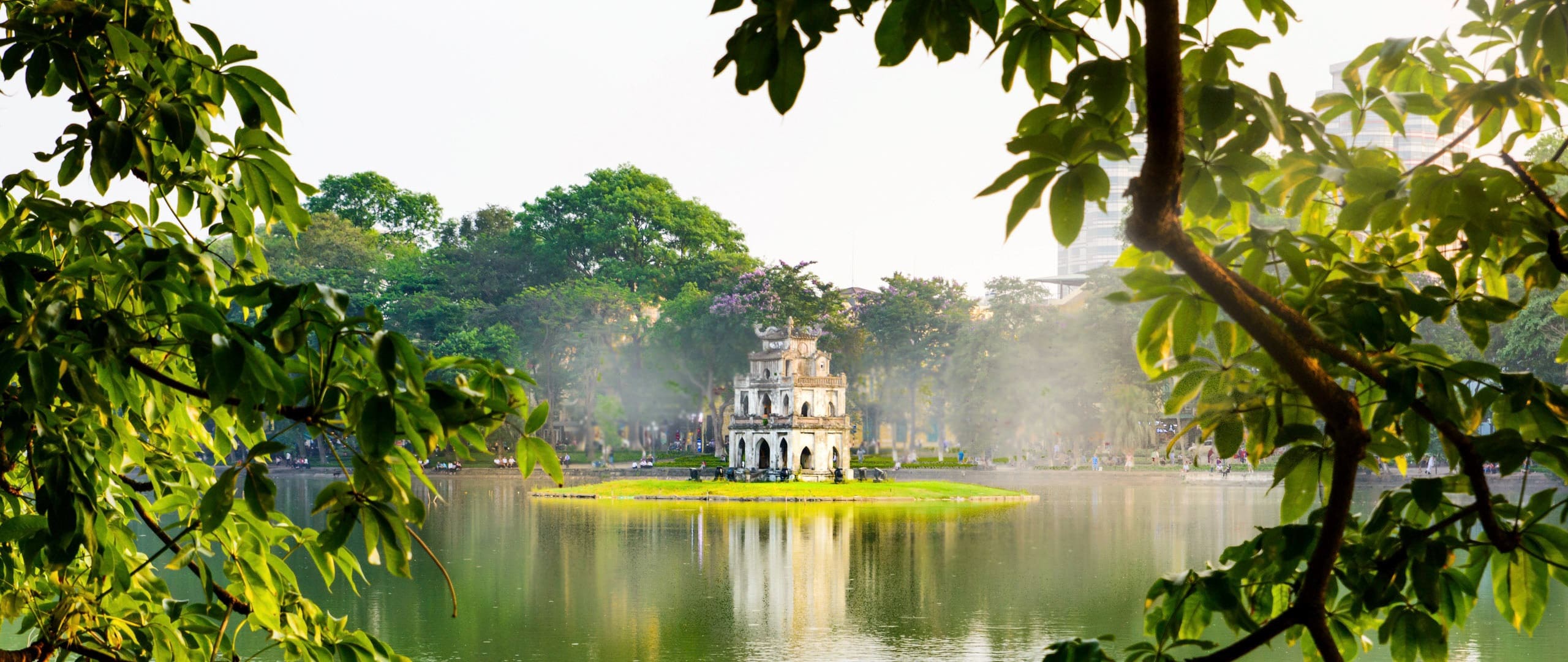 Hanoi (6)
Hanoi (6)
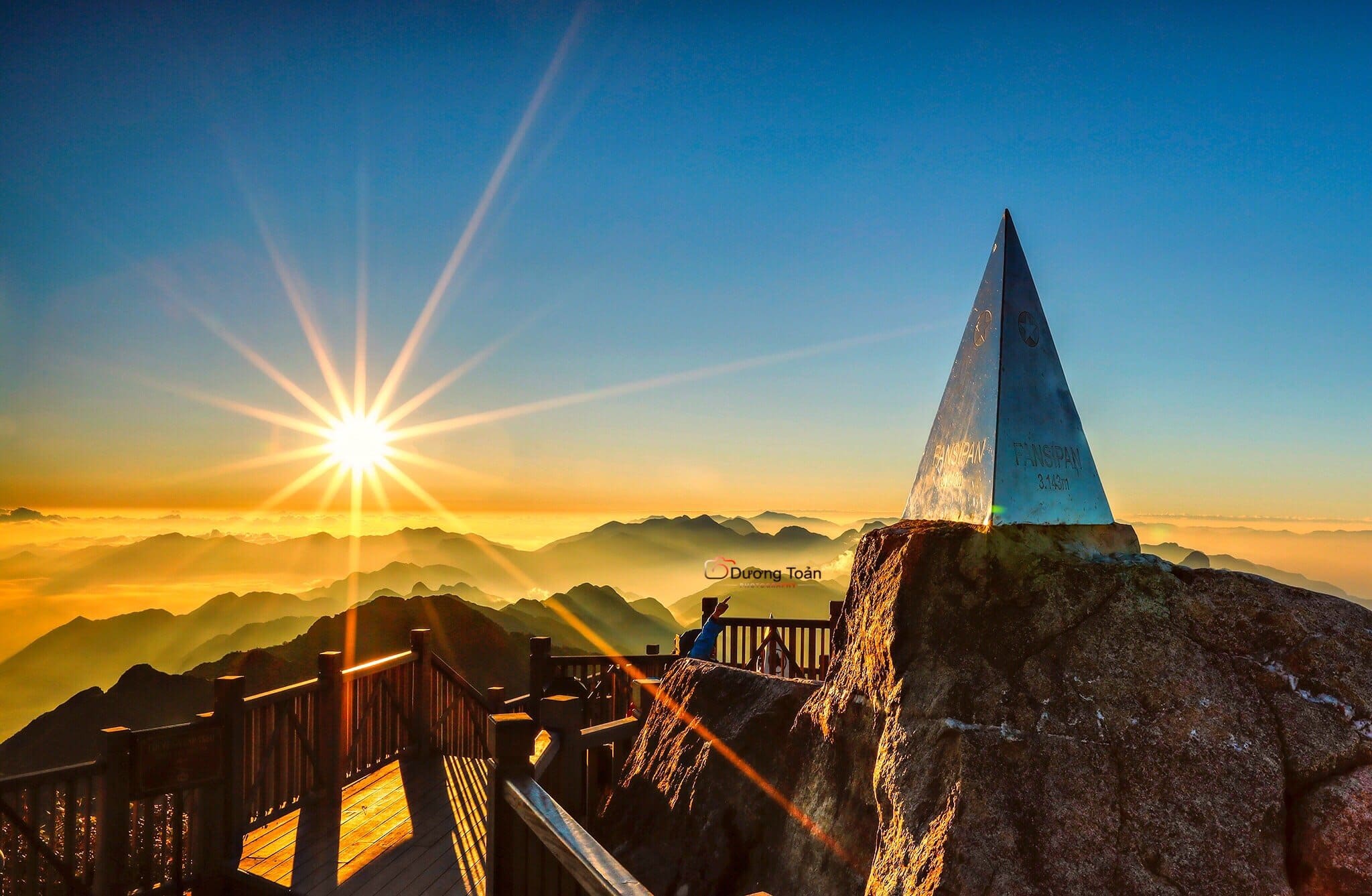 Lao Cai (1)
Lao Cai (1)
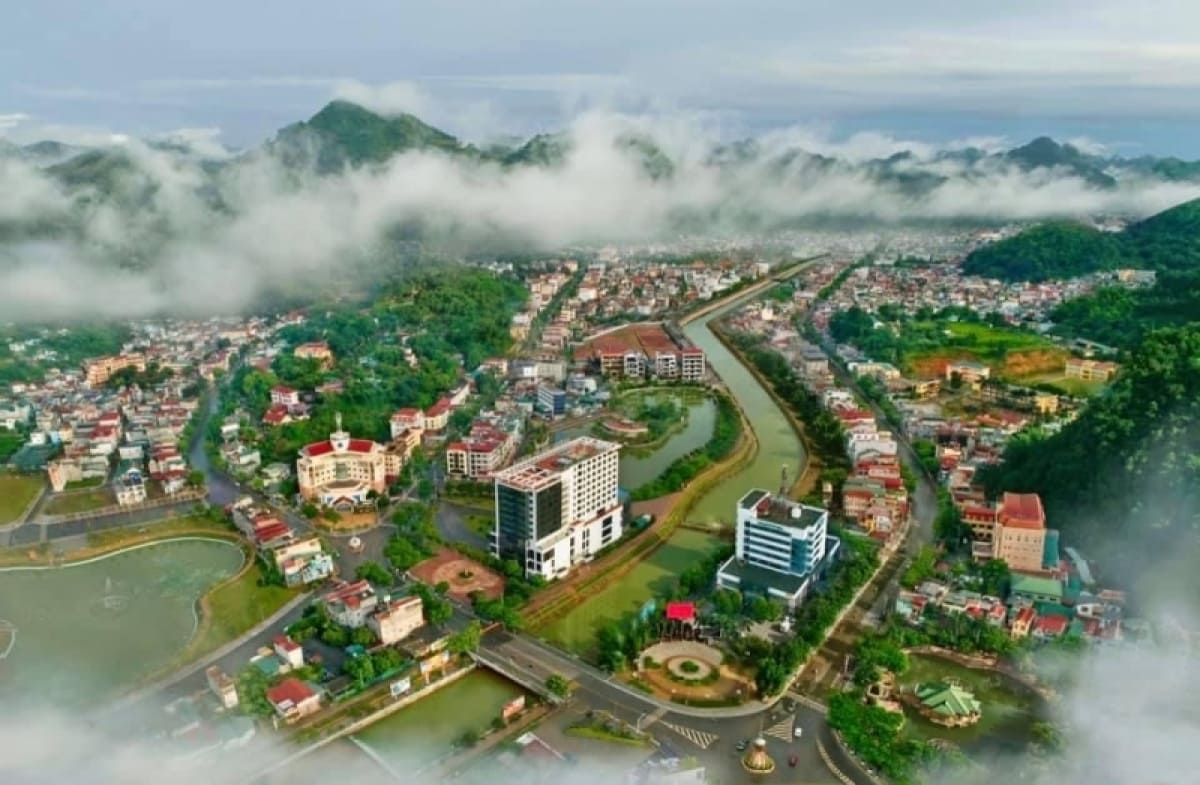 Son La (2)
Son La (2)
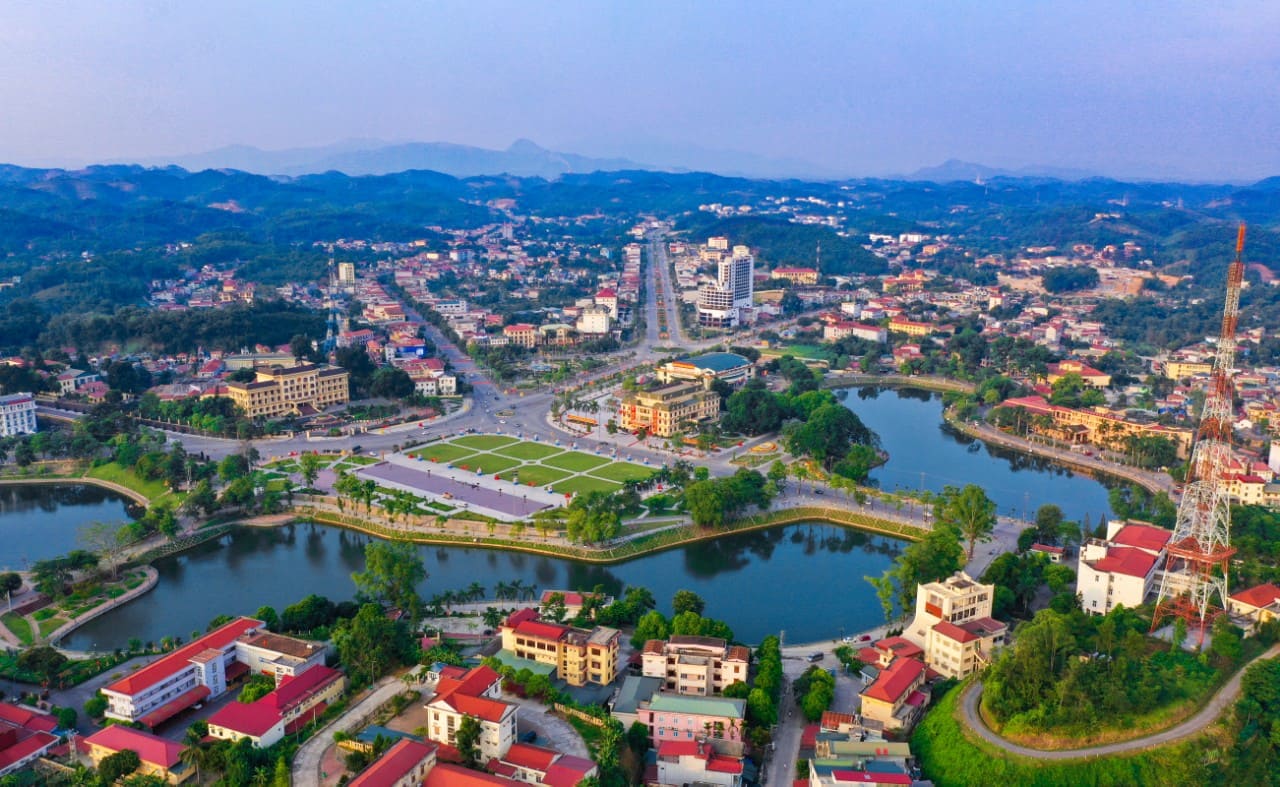 Yen Bai (1)
Yen Bai (1)
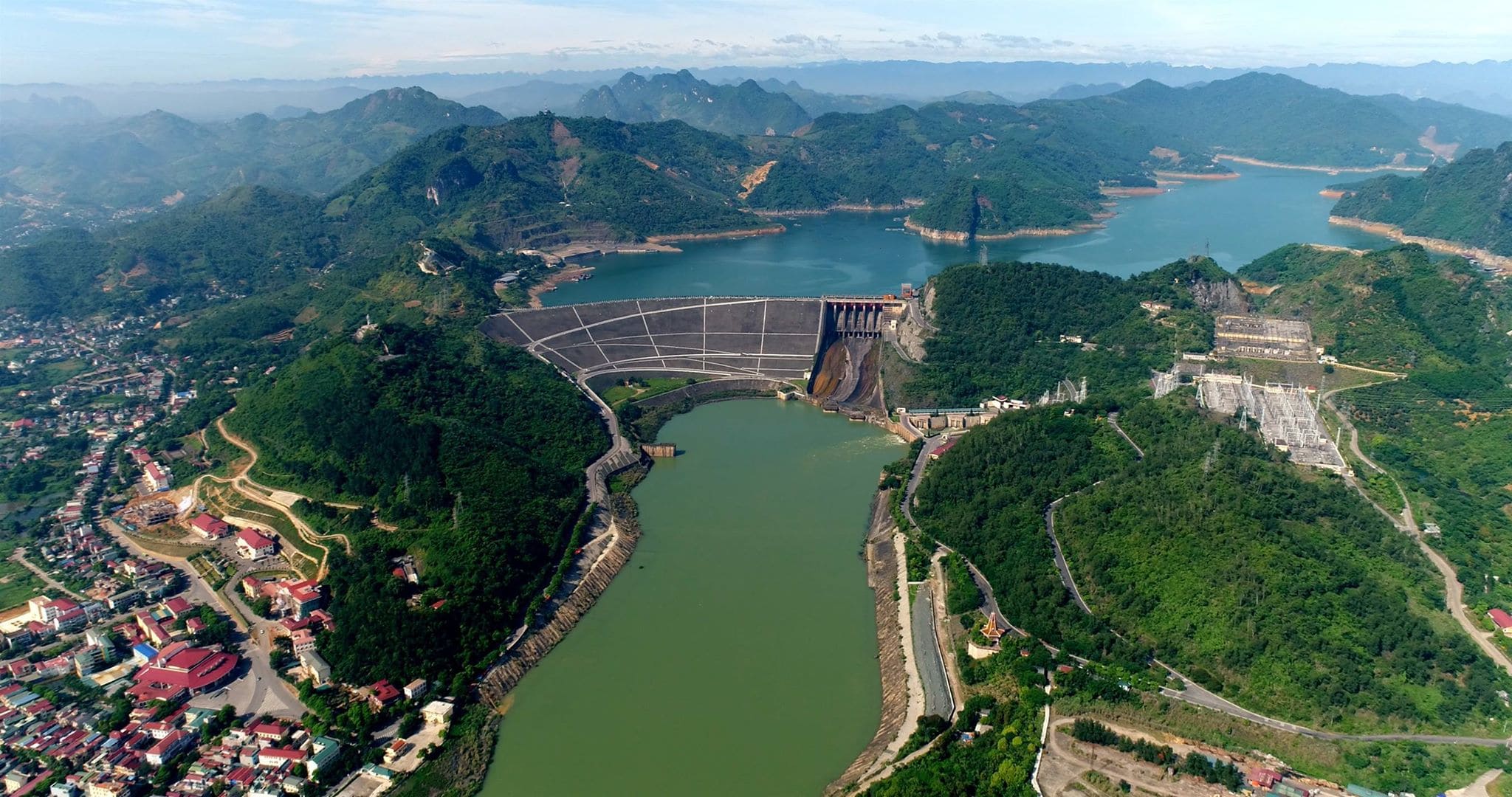 Hoa Binh (1)
Hoa Binh (1)
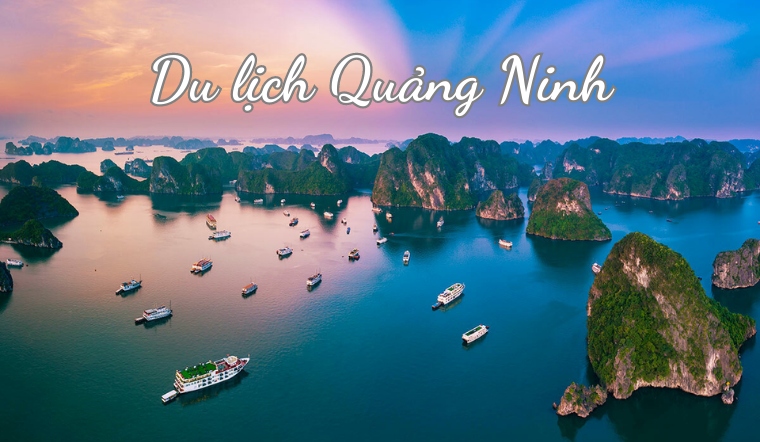 Quang Ninh (18)
Quang Ninh (18)
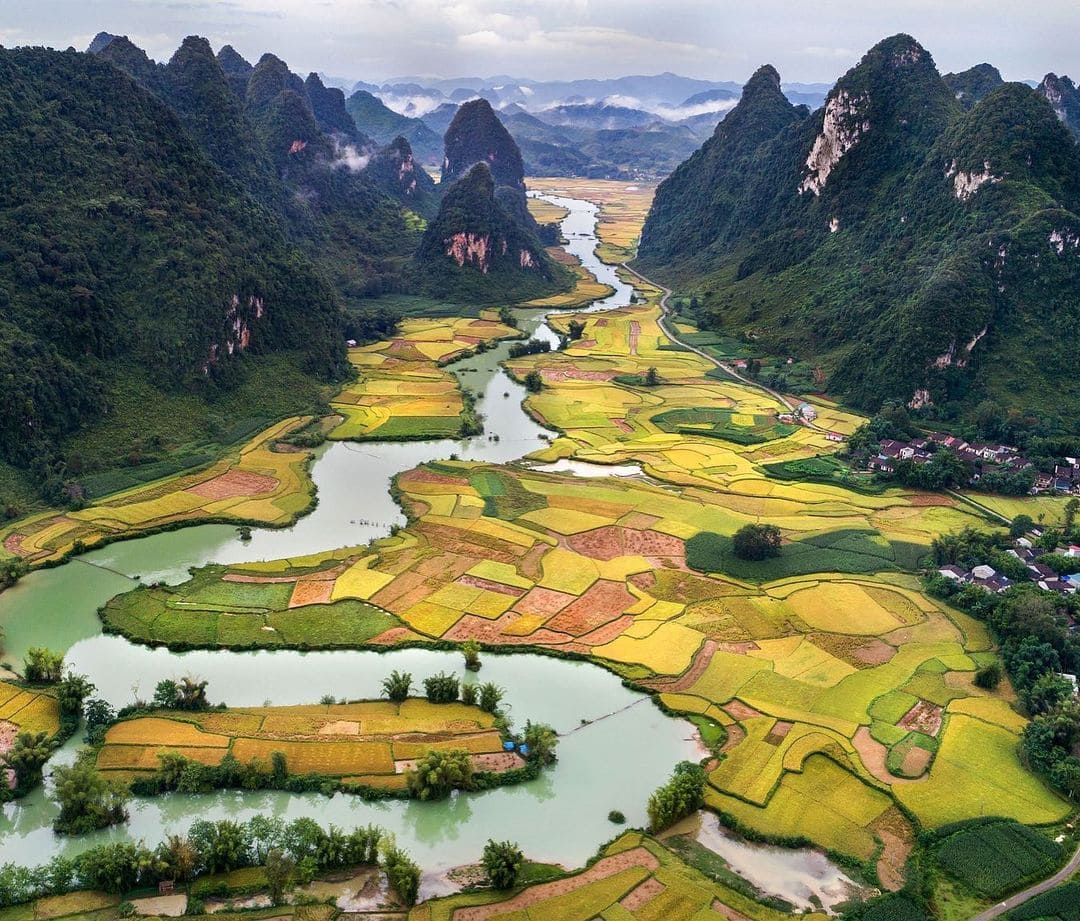 Ninh Binh (1)
Ninh Binh (1)
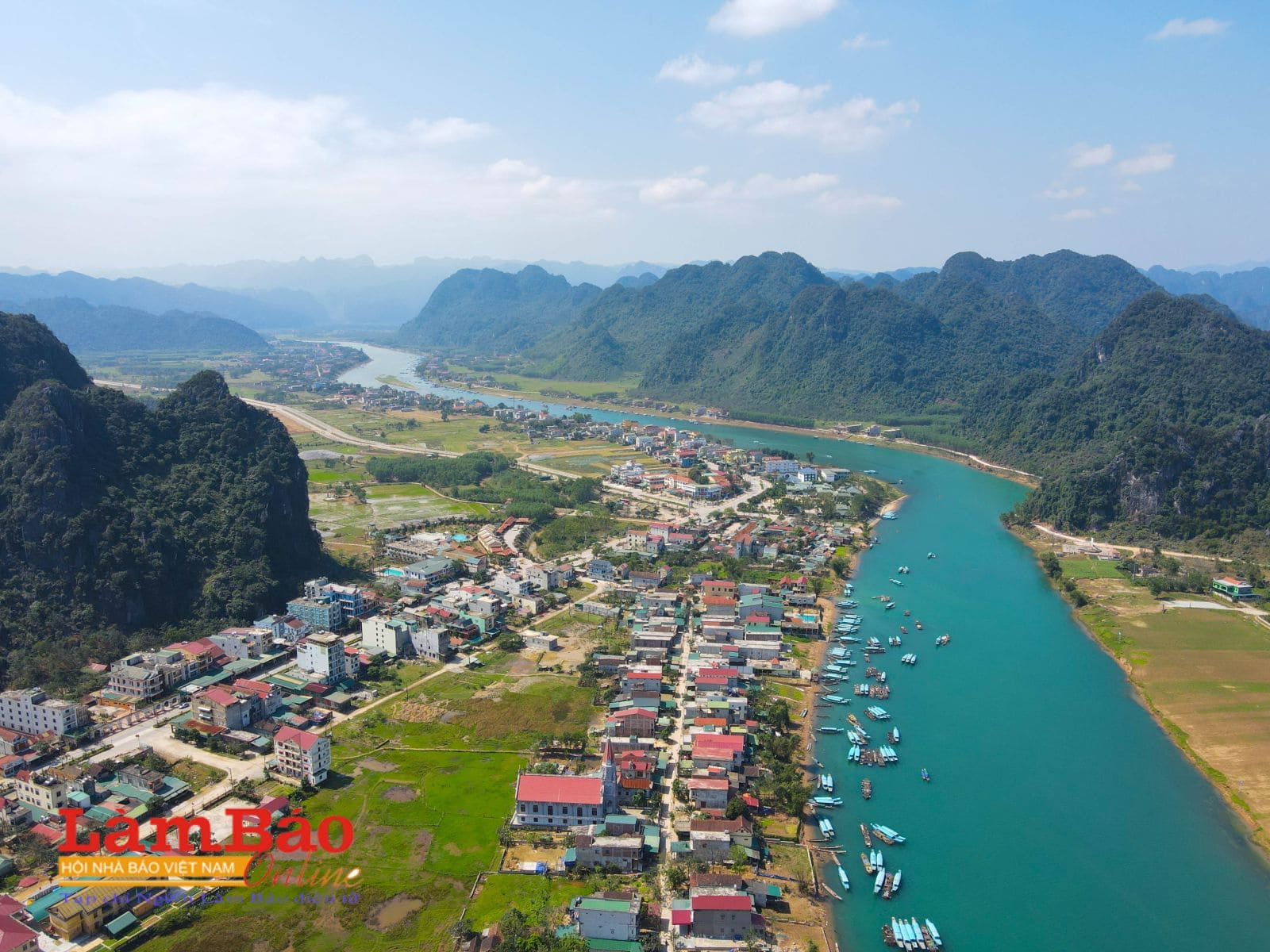 Quang Binh (2)
Quang Binh (2)
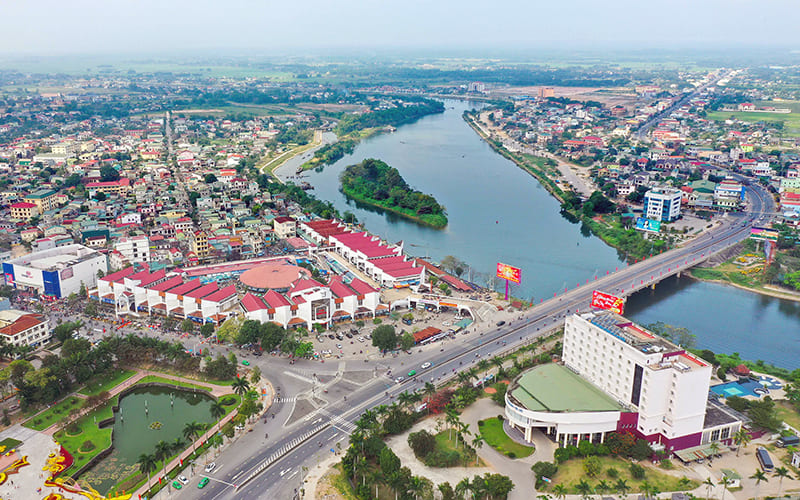 Quang Tri (1)
Quang Tri (1)
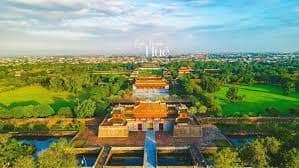 Hue (17)
Hue (17)
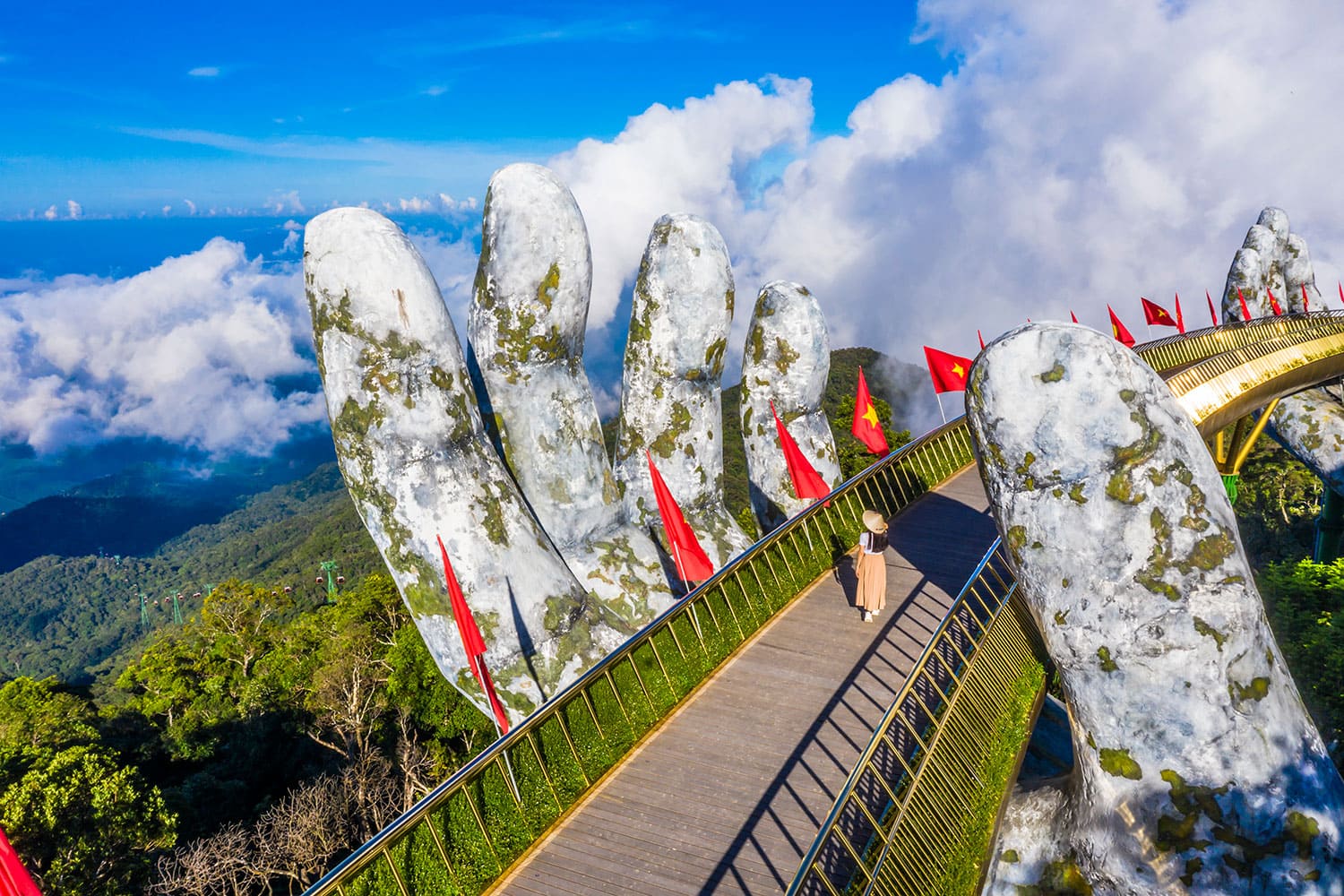 Da Nang (24)
Da Nang (24)
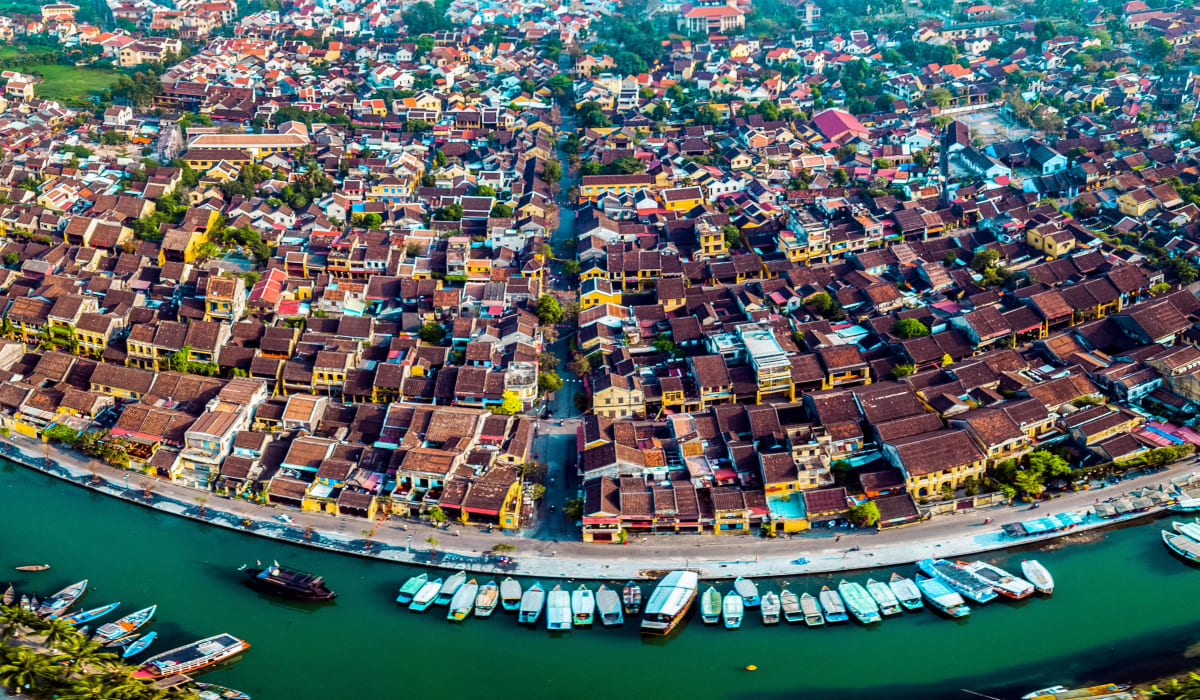 Quang Nam (16)
Quang Nam (16)
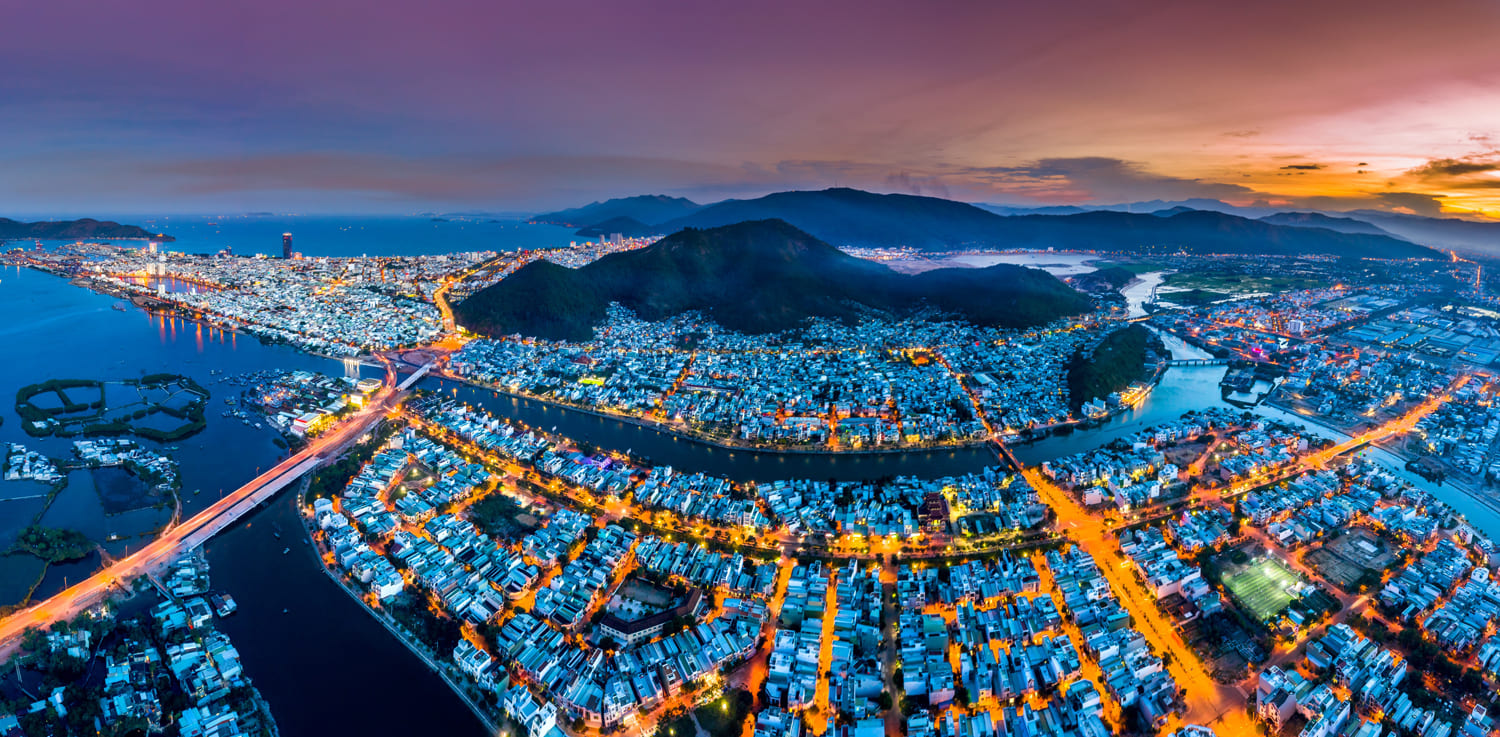 Binh Dinh (1)
Binh Dinh (1)
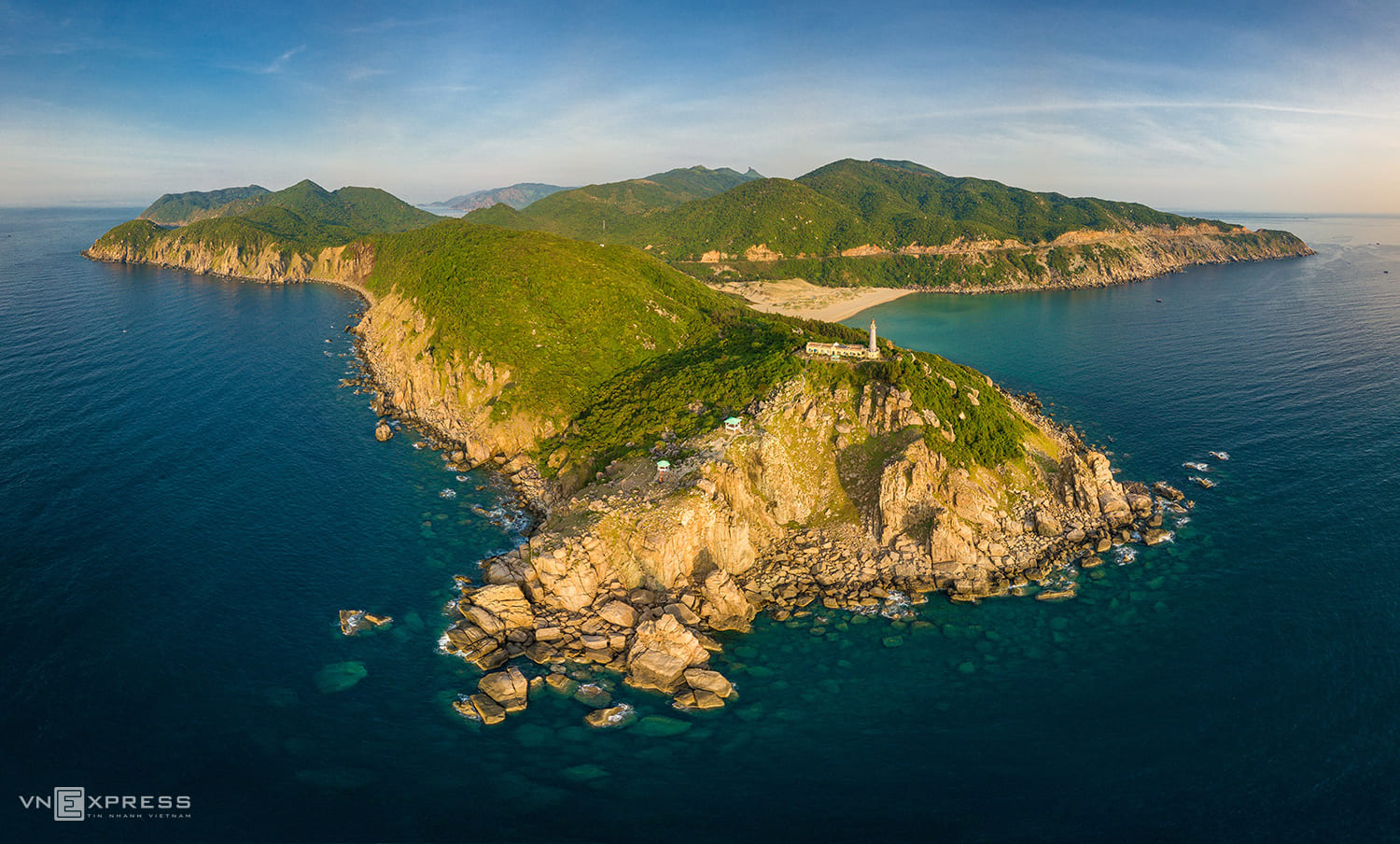 Phu Yen (1)
Phu Yen (1)
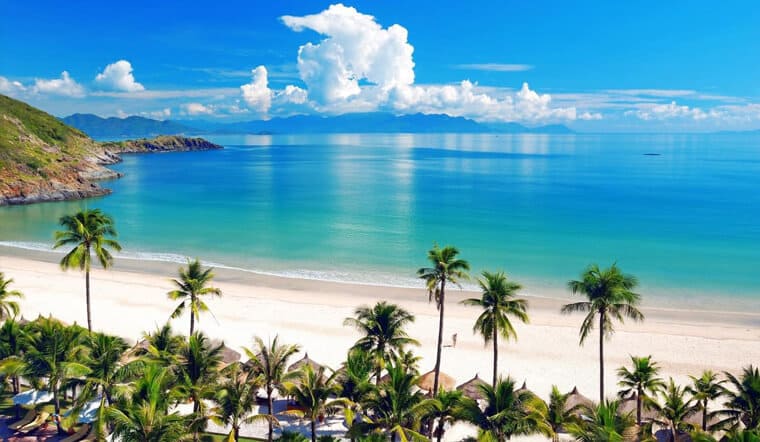 Khanh Hoa (12)
Khanh Hoa (12)
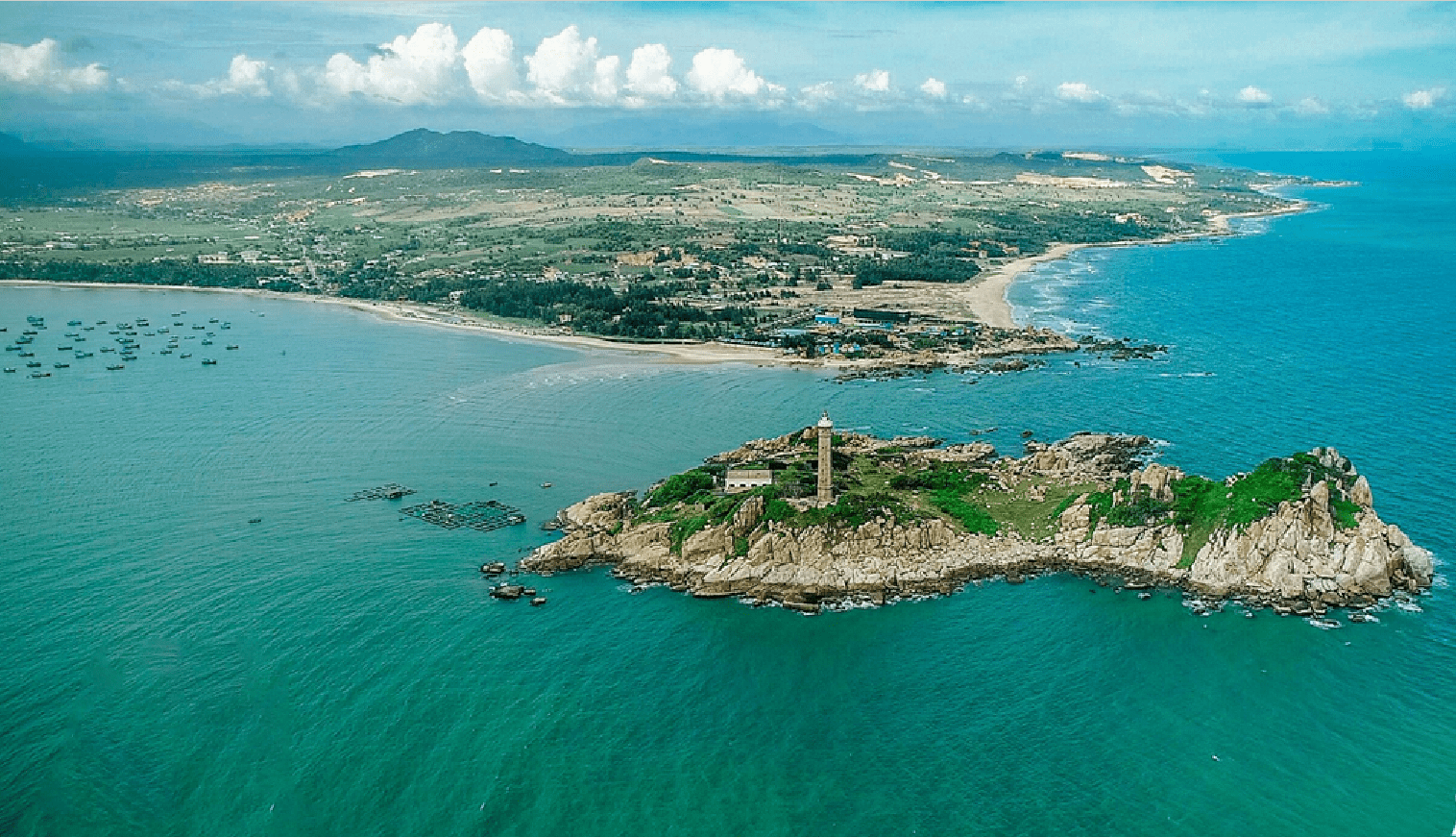 Binh Thuan (1)
Binh Thuan (1)
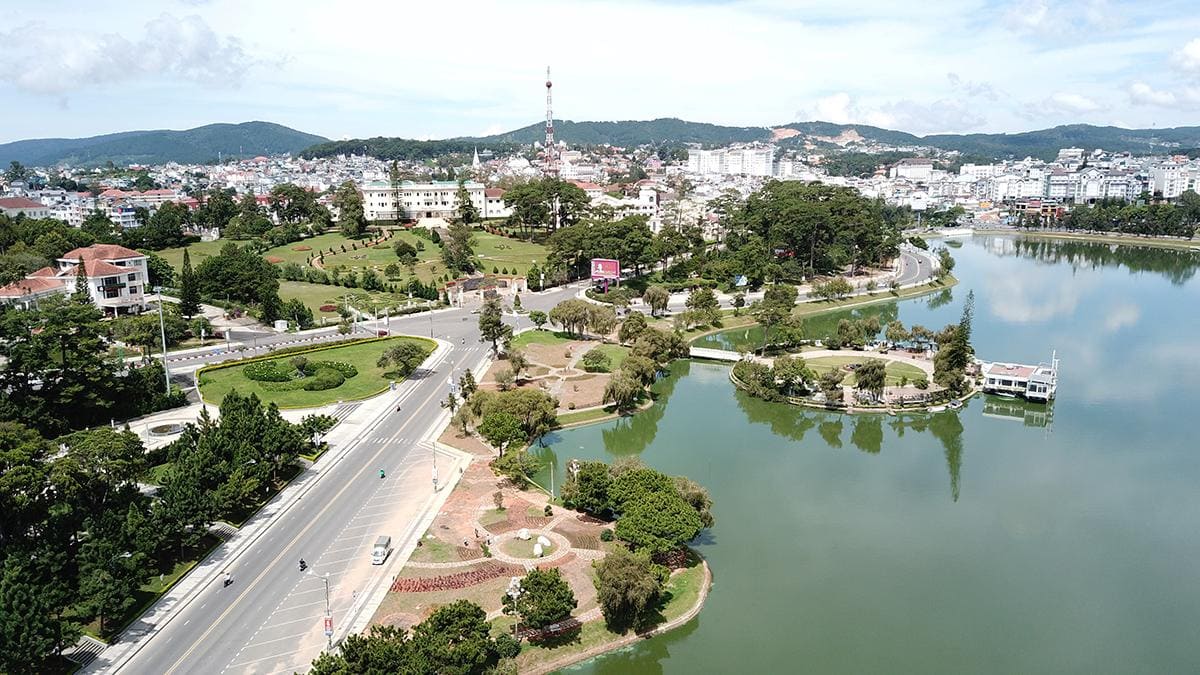 Lam Dong (7)
Lam Dong (7)
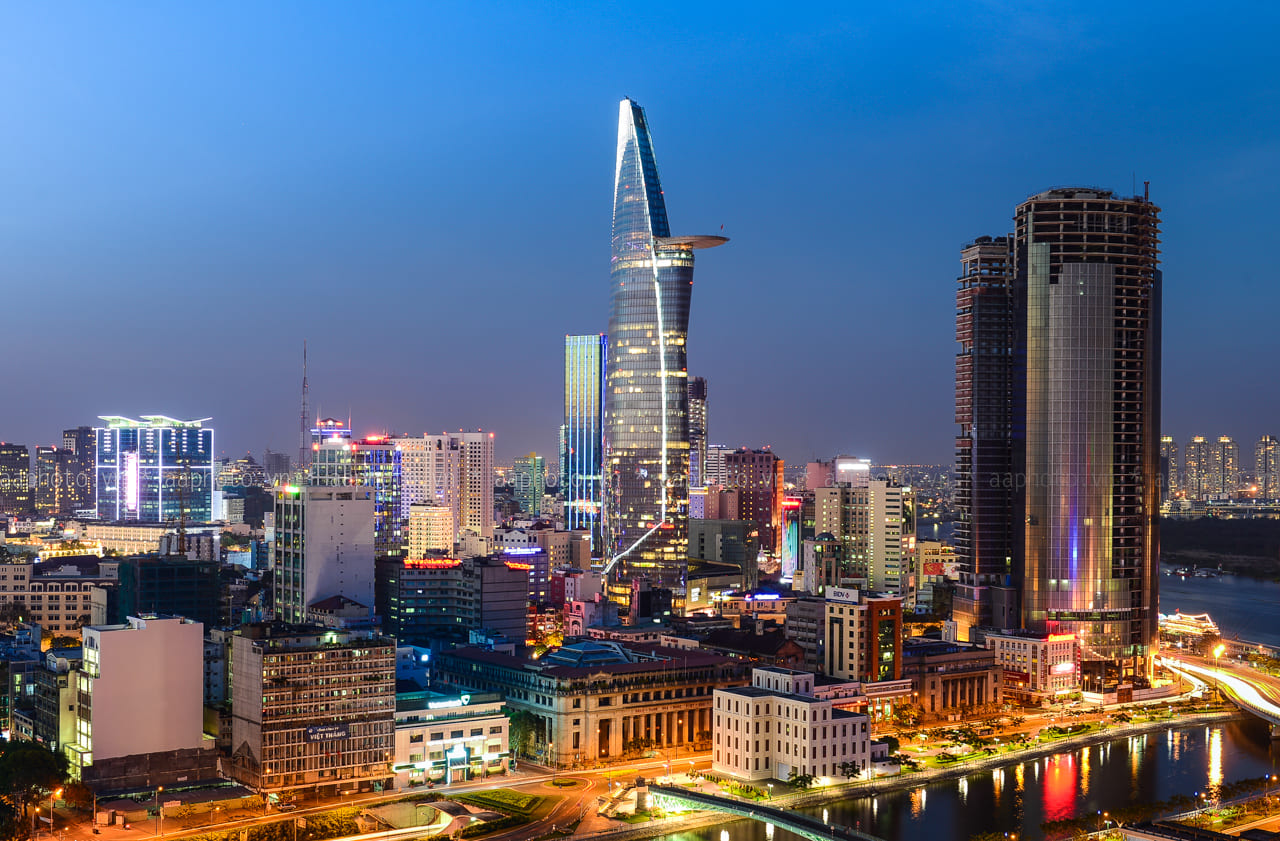 Ho Chi Minh City (3)
Ho Chi Minh City (3)
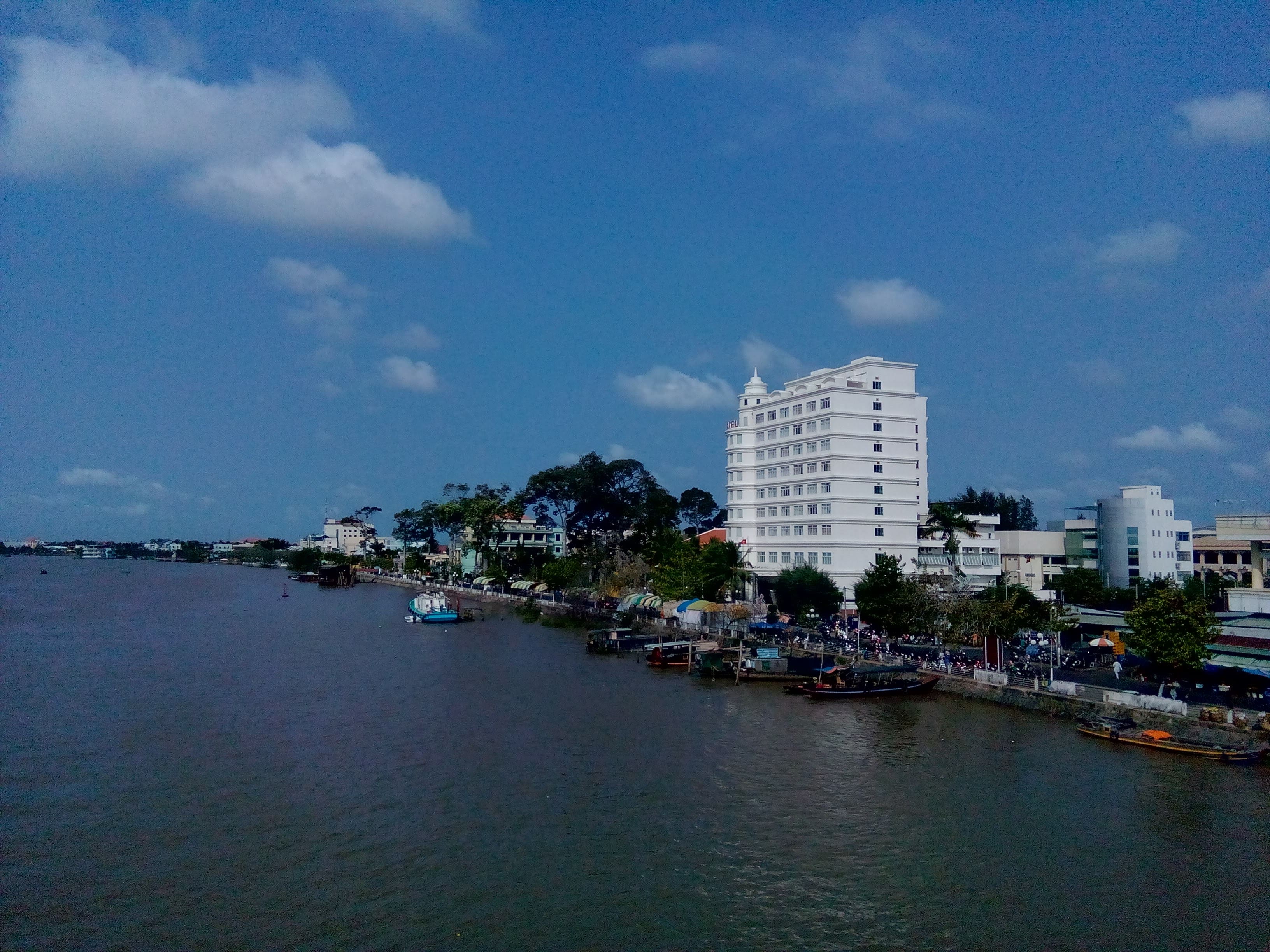 Ben tre (3)
Ben tre (3)
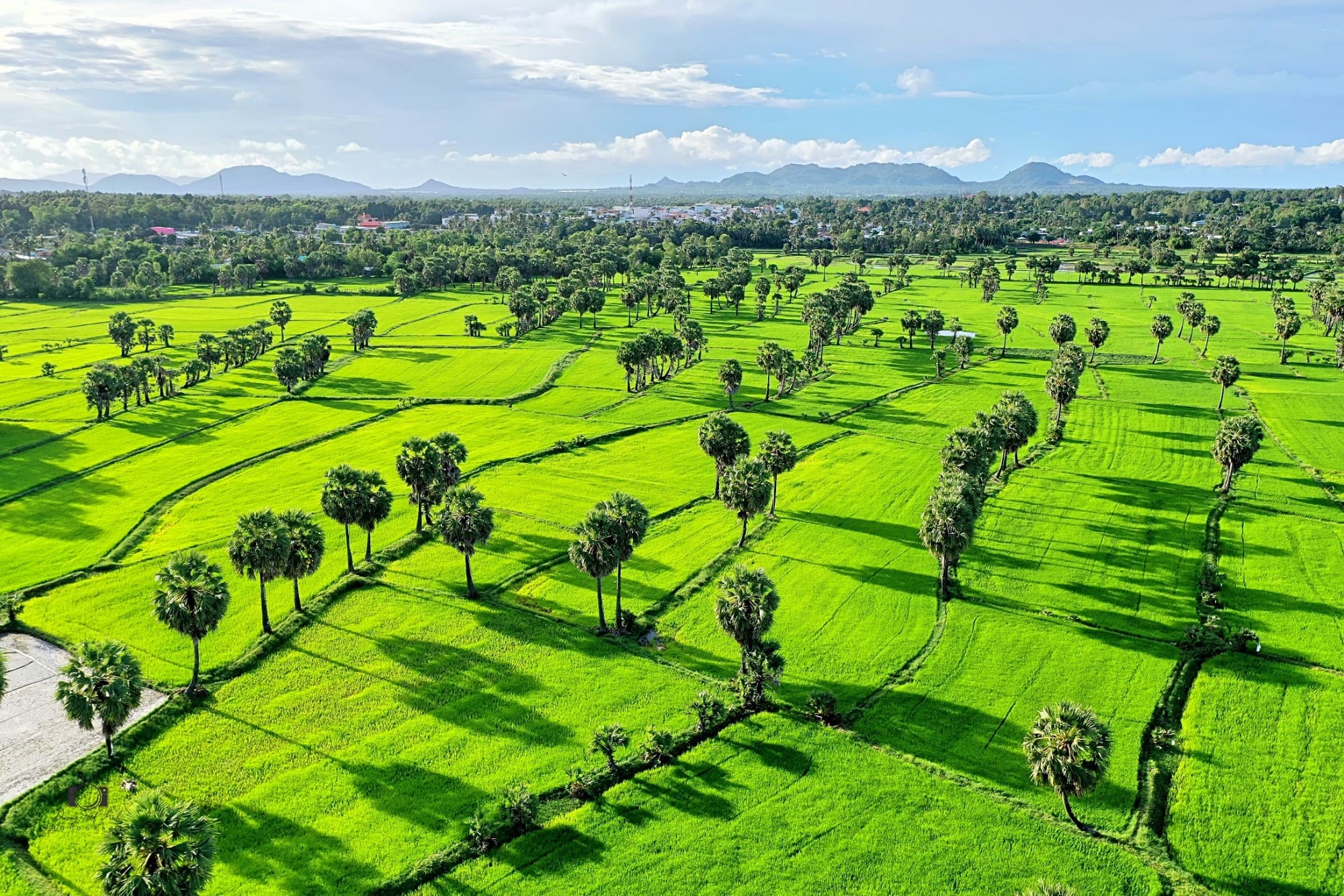 An Giang (1)
An Giang (1)
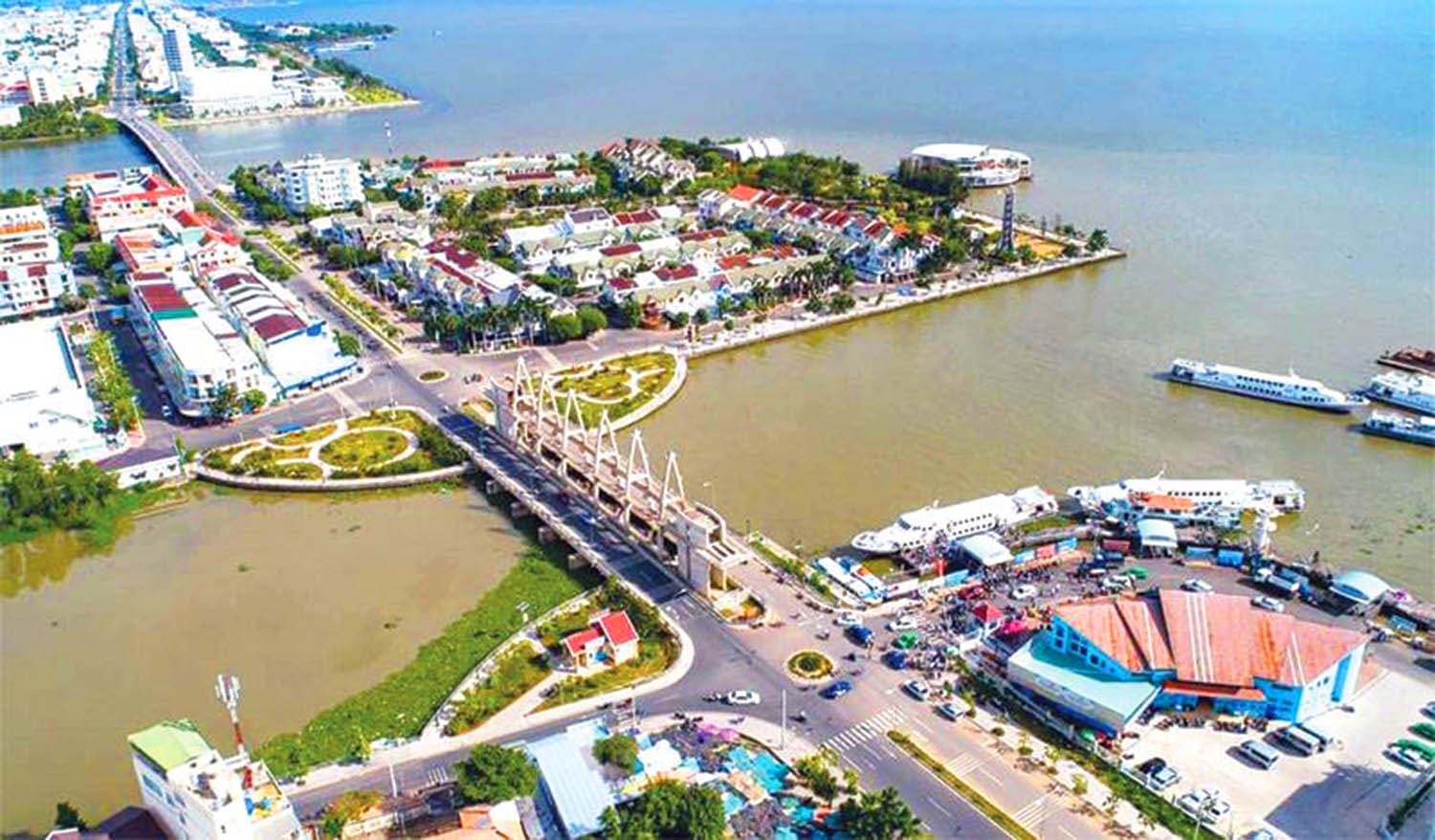 Kien Giang (4)
Kien Giang (4)
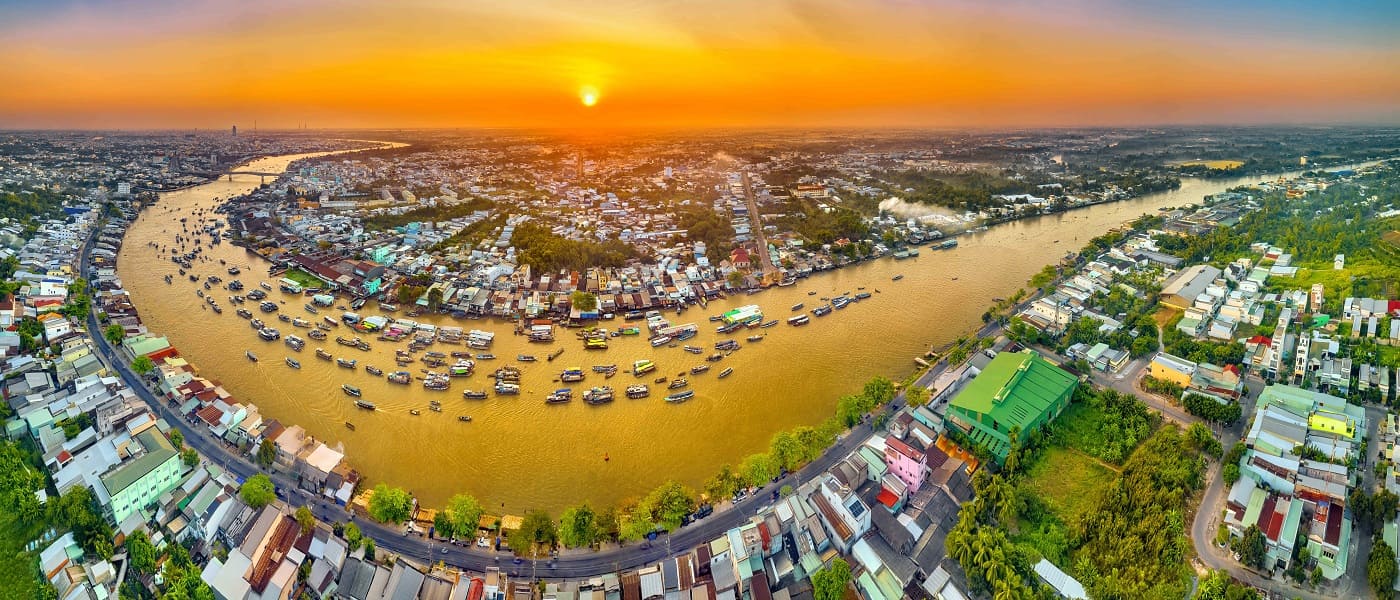 Can Tho (3)
Can Tho (3)
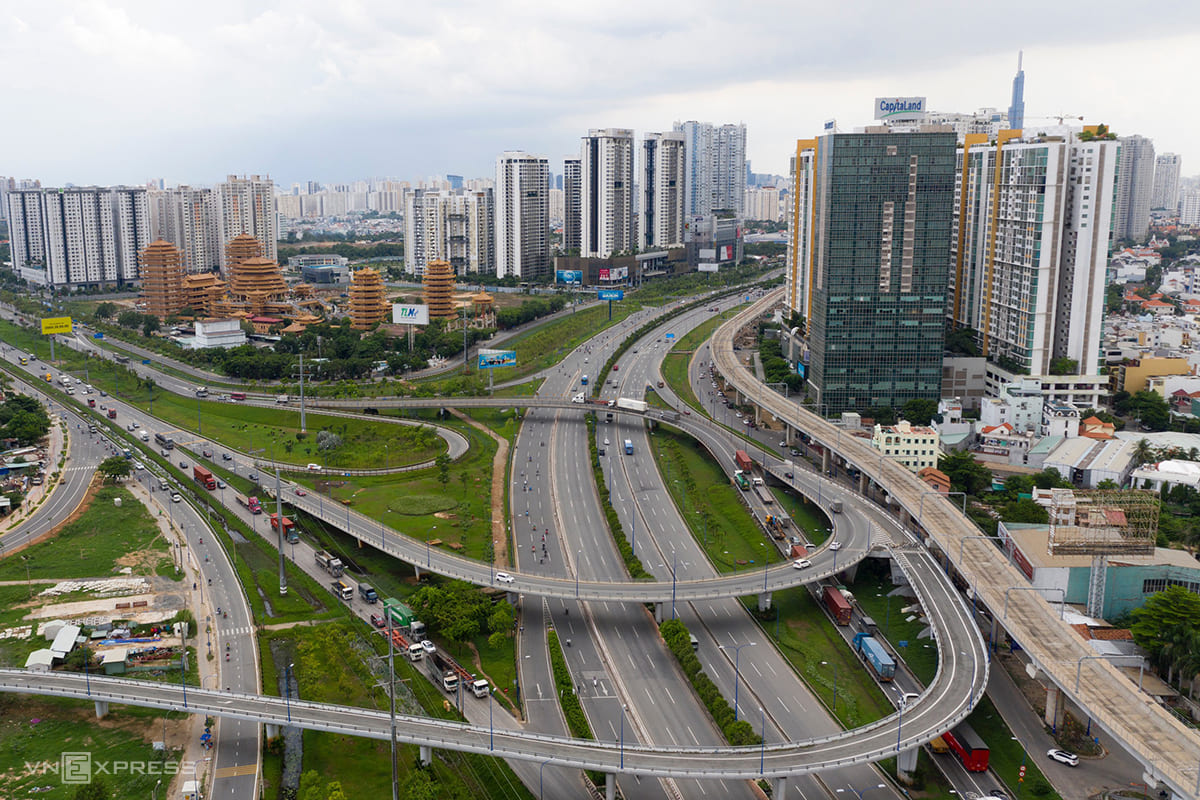 Foreign (3)
Foreign (3)
212, Binh Minh, Cua Lo Town, Nghe An, Vietnam
Tourism Association Nghe An Confirmed
Evaluate 4 () See map
Just words : Contact
Discount % member : 63Stravel Vip
Final price to pay : Contact
4.0 (1 Evaluate)
See all
Resort
Tourism Association Nghe An Confirmed
212, Binh Minh, Cua Lo Town, Nghe An, Vietnam
Just words : Contact
Discount % member : 63Stravel Vip
Final price to pay : Contact
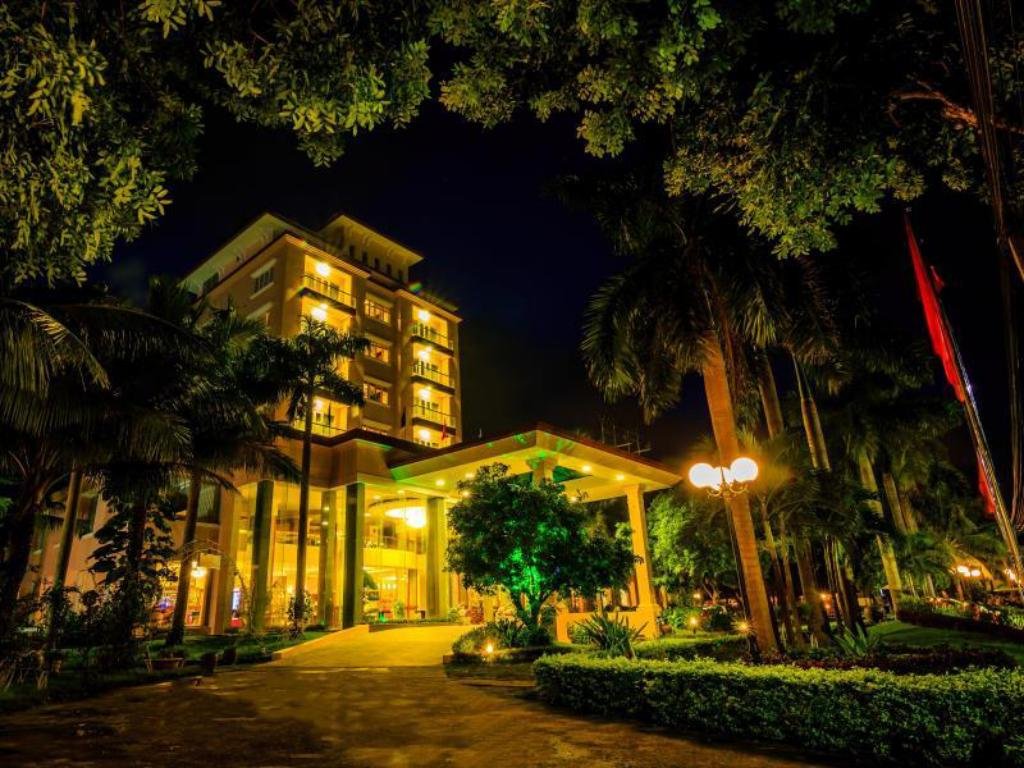
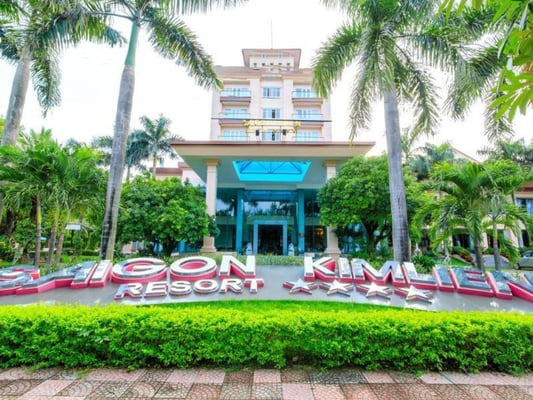
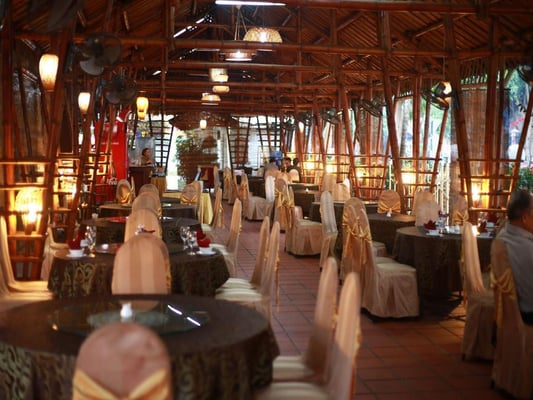
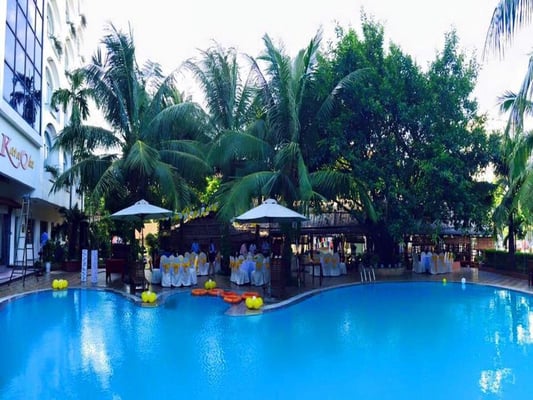
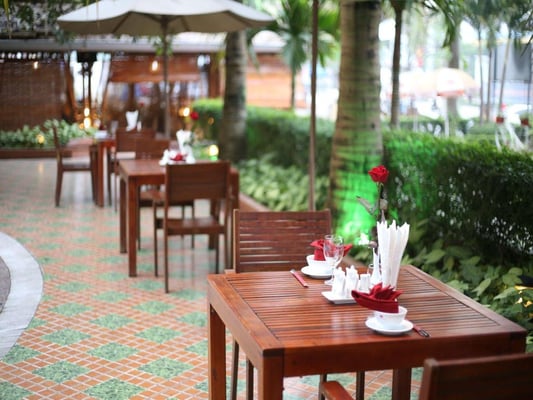
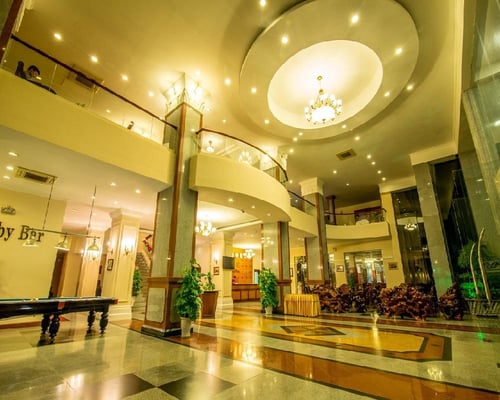
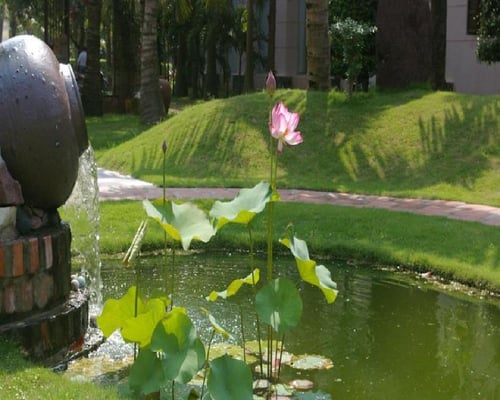
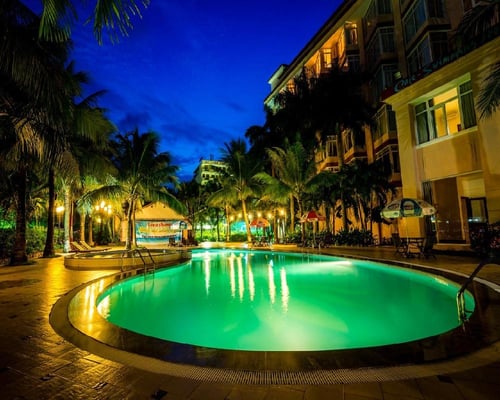
 Parking
Parking
 Receptionist
Receptionist
 Alarm
Alarm
 Selling tours
Selling tours
 Special help
Special help
 Keep your luggage
Keep your luggage
 Free internet
Free internet
 Daily cleaning
Daily cleaning
 Steam laundry
Steam laundry
 Laundry Service
Laundry Service
 Iron
Iron
 Access for people with disabilities
Access for people with disabilities
 Dinner
Dinner
 Lunch
Lunch
 Breakfast
Breakfast
 BBQ party
BBQ party
 Restaurant
Restaurant
 Alcohol
Alcohol
 Meeting
Meeting
 No smoking
No smoking
 Air conditioner
Air conditioner
 Garden
Garden
 Balcony
Balcony
 Pool
Pool
Hotel policy at Saigon Kim Lien Resort - Cua Lo Beach:
- No smoking allowed
- No pets allowed
- Allows organizing parties/events
- Children from 13 years old will be considered adults
- Please enter the correct number of guests and age to get the exact price.
Kind of room : Superior Twin Room
- Maximum capacity of room 4 - Standard number of guests 2 - Allowing 2 additional children to accommodate a maximum of 4 guests may incur an additional fee - For details of surcharges, please see "Final price"
Room price : Contact
Discount % member 63Stravel Vip
Final price to pay : Contact
Kind of room : Deluxe Twin Room
- Maximum capacity of room 3 - Standard number of guests 2 - Allowing 2 additional children to accommodate a maximum of 3 guests may incur an additional fee - For details of surcharges, please see "Final price"
Room price : Contact
Discount % member 63Stravel Vip
Final price to pay : Contact
Kind of room : Executive Deluxe Room 1 Double Bed
- Maximum capacity of room 4 - Standard number of guests 2 - Allowing 2 additional children to accommodate a maximum of 4 guests may incur an additional fee - For details of surcharges, please see "Final price"
Room price : Contact
Discount % member 63Stravel Vip
Final price to pay : Contact
Kind of room : Suite Room with 1 Large Bed
- Maximum capacity of room 4 - Standard number of guests 2 - Allowing 2 additional children to accommodate a maximum of 4 guests may incur an additional fee - For details of surcharges, please see "Final price"
Room price : Contact
Discount % member 63Stravel Vip
Final price to pay : Contact
4.0 (1 Evaluate)
See all
Hotel policy at Saigon Kim Lien Resort - Cua Lo Beach:
- No smoking allowed
- No pets allowed
- Allows organizing parties/events
- Children from 13 years old will be considered adults
- Please enter the correct number of guests and age to get the exact price.
Cua Lo Beach belongs to Cua Lo town, Nghe An province. This place is about 16km east of Vinh city, and 340km from Hanoi capital. In the past, Cua Xa - Lach Lo was known as a dangerous area with a strategic military position. Through ups and downs, Cua Lo beach was officially designated and became a prominent highlight in the tourism industry in the North Central Coast. Cua Lo has many small mountains and peninsulas, but also has flat plain terrain. Surrounded by the beautiful Cam River and Lam River, creating a beautiful landscape painting. Traveling to Cua Lo beach is the ideal choice for every family to relax and cool off on hot summer days. Beach travel is always more attractive on hot days, because now you can enjoy the refreshment of immersing yourself in cool water. The most ideal time to come to Cua Lo beach is from May to the end of October. Because this is the time when Cua Lo enjoys full sunshine, the weather is warm, suitable for outdoor activities. If you want your trip to be comfortable and not too crowded, avoid going on major holidays or weekends. But no matter what time you come, Cua Lo beach is still worth experiencing thanks to its wonderful beauty and many interesting activities. Cua Lo Beach is known as one of the most beautiful places in the North Central region. This place attracts many tourists not only because of its poetic natural scenery with blue sea, white sand, and golden sunshine. But also impressed by many unique folk cultural activities and eye-catching fireworks displays at the end of the tourist season (around the end of September). Coming to Cua Lo, you can enjoy the following delicious dishes. Crab sprouts: This dish not only awakens the sense of smell and taste of all diners but also contains high nutritional content. Crab sprouts are meticulously prepared from crab meat and many accompanying spices, guaranteed to be unforgettable once eaten. Steamed crab with tamarind: Although it is a popular seafood dish, steamed crab with tamarind in Cua Lo attracts everyone because of its unique flavor. The viscous tamarind juice fragrant with spices and the fried and then steamed crab create an attractive flavor, ready to please all diners. Clam porridge: Although it is a quite simple dish, to cook a delicious pot of porridge, it is necessary to go through many complicated steps. When eaten, clam porridge is mixed with herbs to stimulate the taste buds. Jumping squid: This is a specialty dish of Cua Lo because of the freshness of the squid when it has just been caught and processed right on the spot. Squid can be steamed, grilled... served with extremely attractive dipping sauce.
Nghe An
May to October
3281 view
Tham Om Cave is located at an altitude of 15m above sea level, the cave entrance is in the Northeast direction. This place is magnificent with fossils and mysteries that need to be discovered. Tham Om Cave is located in Quy Chau district, Nghe An province, about 7km from Road 48. This place is considered to contain many precious artifacts of ancient Vietnamese people, preserving a long-standing culture. Visiting Tham Om Cave is not only an opportunity to learn about history but also experience ancient culture. The cave is free and operates all day, so take the time to explore the interesting things at this location. In 1975, Tham Om Cave was discovered and excavated. Archaeologists have found many precious artifacts, from bronze, stone, to fossil animal bones and teeth, reflecting the life of ancient Vietnamese people. The Tham Om people are considered the first modern people in Vietnam. Transliterated in Thai, “Tham Om” means big cave. This place often attracts many tourists to visit every year. Tham Om Cave is considered a unique natural masterpiece of Nghe An. Take the time to come to this place to explore, experience and feel for yourself one day soon. When you arrive at Tham Om Cave, Quy Chau, Nghe An, you will immediately feel the wild and majestic beauty of mountain nature. The bustling sound of birds singing and the cool air will make your trip more attractive. Inside the cave is a special phenomenon of weathering due to water erosion on limestone mountains. With every step you take, you will encounter stalactites, large cliffs, along with diverse and unique shapes. All create the feeling of a special gift from the Creator. Coming to this cave, you will enjoy rustic culinary dishes such as banana flowers, yam fruit, green vegetables, bamboo shoots, wild bee pupae, and delicious grasshoppers. Don't forget to bring Nghe An specialty products as gifts for your loved ones after the trip.
Nghe An
From January to December
2623 view
Hoang Tru village is about 2km from Kim Lien village, in Kim Lien commune (Nam Dan district, Nghe An province), about 15km from Vinh city. There is a 3,500m2 Hoang Tru relic cluster here, including: The house of Mr. Hoang Duong - Uncle Ho's grandfather, the Hoang Xuan family branch church, the house of Mr. Nguyen Sinh Sac and Ms. Hoang Thi Loan - relatives giving birth to Uncle Ho. On the occasion of the Year of the Tiger in 1878, Mr. Hoang Duong, on his way to celebrate the New Year, met a little boy sitting on a buffalo's back, engrossed in reading a book. That boy's name is Nguyen Sinh Sac, he was orphaned when he was 4 years old. Feeling sorry for the situation and appreciating the virtue of studiousness, Mr. Hoang Duong asked the Nguyen Sinh family for permission to take Nguyen Sinh Sac home to raise and educate him. At that time, Nguyen Sinh Sac was 15 years old. Under the guidance of Mr. Hoang Duong, the more Nguyen Sinh Sac studied, the smarter he became, becoming famous throughout the region. When Nguyen Sinh Sac turned 18 years old, the couple chose him to be the son-in-law for their first daughter, Hoang Thi Loan. In 1883, the two got married and lived separately in a newly built small 3-room house. The house is the place to witness student Nguyen Sinh Sac diligently reading, witnessing the diligence and loyalty of his wife and the birth of his children. At the Huong exam in the year of Giap Ngo 1894, Mr. Nguyen Sinh Sac passed his bachelor's degree from Nghe An school. In 1895, he went to Hue capital to study and took his wife and children with him. After giving birth to her fourth child (in 1900), Ms. Hoang Thi Loan died in Hue at the age of 33 (February 1901). Mr. Nguyen Sinh Sac's father and son sadly left the imperial capital to return to Hoang Tru village to live. At the Tan Suu Faculty exam (1901), Mr. Nguyen Sinh Sac went to Hue to take the exam and passed the exam. King Thanh Thai gave him the plaque "An tu ninh gia" (Thanks to the king for his good family). According to tradition, Mr. Nguyen Sinh Sac and his children said goodbye to Hoang Tru village and returned to their paternal hometown - Kim Lien village to honor their ancestors. Hoang Tru relic area with a small three-room house is the place where President Ho Chi Minh was born, where the beautiful and difficult childhood years of him and his grandparents were attached. parents, brothers and sisters. It was also here that he received the love of his relatives and his homeland, and witnessed the devoted teaching of his grandfather and father. Those spiritual values are the source of a great aspiration for young Nguyen Sinh Cung to become the great President Ho Chi Minh, a Hero of national liberation, a cultural celebrity of Vietnam and of Vietnam. mankind.
Nghe An
From January to December
1790 view
One of the highlights of this beach is the long sandy coastline and gradually increasing depth, creating favorable conditions for swimming and relaxing on the clean sand beaches stretching along the coast. Cua Lo Nghe An Beach is also a gathering place for many entertainment and relaxation activities such as jet skiing, hot air balloon flying, walking along the beach, stargazing on the beach, squid fishing in basket boats at night and many other activities. This creates conditions for visitors to enjoy exciting moments of relaxation and entertainment at Cua Lo beach - Nghe An. Summer (from April to August) is the ideal time to visit Cua Lo Nghe An, especially for those who like swimming. At this time, the weather is dry and sunny, visitors can comfortably follow their schedules and capture wonderful moments. One of the new activities added to the tourism program at Cua Lo Nghe An beach is flying a hot air balloon to see the sea. For 200,000 VND per trip, visitors will be taken to a maximum height of 50m to see the beauty of Cua Lo beach. This activity takes place in the time frames from 6:30 a.m. - 9:30 a.m. and 4:30 p.m. - 6:30 p.m. Note that the activity only takes place during one event period, so visitors need to follow the schedule to arrange a reasonable time for their trip. Early morning is the ideal time to swim and watch the sunrise at Cua Lo beach, Nghe An. Fresh air and cool sea water will help visitors relax and enjoy wonderful beautiful moments. In addition, you can also participate in many other activities such as riding a jet ski, kayaking, walking along the beach, and taking photos on the beach.
Nghe An
March to November
1773 view
About 16km from Vinh City, Sen village (Kim Lien) in Kim Lien commune, Nam Dan district, Nghe An province is Uncle Ho's paternal hometown. This is one of the four most important monuments in the country and is also the pride of the people of Nghe An. You can go to Sen village at any time of the year, but the most suitable time is in May. This is the occasion when the lotus ponds bloom, radiating a fragrant scent, bringing a pleasant feeling. dispel the sultry and stuffy heat and harsh wind in the Central region. Moving to Nghe An is very simple, you can easily travel by different means. From Hanoi and Ho Chi Minh City there are direct flights to Vinh city. You can also travel by train to Vinh station or by bus and motorbike. From Vinh city, follow road 49 to kilometer 13, turn onto the red dirt road shaded with eucalyptus and rows of green casuarina trees to reach Sen village. At the beginning of the village there is a large lotus pond, passing through the lotus pond is Coc well. Here, as a child, Uncle Ho often went to fetch water, fish and have fun with friends in the village. Behind the shady green bamboo fence is the simple, simple, five-room thatched-roof house of the family of Deputy Bang Nguyen Sinh Sac, Uncle Ho's father. After passing the Vice Ranking in the exam in the year Tan Suu 1901, Mr. Nguyen Sinh Sac and his children left Chua village (Hoang Tru) to live in Sen village, his paternal hometown. This house was built by the people of Sen village using public funds to celebrate him passing Pho Bang, bringing honor to the whole village. In front of the house there are 2 small yards and a garden surrounded by a hibiscus fence. Next to the house is a horizontal house used as a kitchen. The two outer rooms are where the altar is placed and where guests are received. The third room is the residence of Mrs. Nguyen Thi Thanh - Uncle Ho's eldest sister. The remaining two rooms are the family's resting and living areas. The fifth room has only one counter and is also the resting place of Mr. Nguyen Sinh Khiem and Nguyen Sinh Cung (Uncle Ho). Even though he passed high scores, the items in the house are still very simple like many other rural houses: wooden counters, bamboo beds, clay jars for water, bamboo bowls, etc. Most of these items are made by donated by the villagers, these memorabilia are still kept today. Uncle Ho was attached to this house during his teenage years from late 1901 to mid-1906. The house witnessed Uncle Ho's learning and growth process; is the place where his first feelings of patriotism and his awareness of the times were marked. After 50 years away from his homeland, traveling to find a way to save the nation, making a revolution to free the country from French colonial rule, he returned to Sen village twice in 1957 and 1961. You can visit the houses that were close neighbors to Uncle Ho's family at that time such as the Co Dien smithy, the house of Mr. Vuong Thuc Quy, the house of the Confucian master, the house of Mr. Nguyen Sinh Nham - Uncle's grandfather,...
Nghe An
May to October
1896 view
Vinh City - the heart of Nghe An - a land with a history of hundreds of years, where King Quang Trung - Nguyen Hue chose to build the capital in 1788. From then on, it was also called Phuong. Hoang Trung Do. Thanh Vinh in the past belonged to Vinh Yen commune, Yen Truong district, Nghe An province. Now it is Cua Nam ward - Vinh city, Nghe An province. The citadel's old name is Nghe An Citadel, and in folk culture it is also known as Turtle Citadel (turtle citadel). The reason it is called the turtle citadel is because the citadel was built in a 6-sided shape. Standing on Quyet mountain, looking down, it looks like the shape of a turtle. The citadel was built in the Nguyen Dynasty, during the reign of King Gia Long. In 1802, the Nguyen dynasty seized power from the Tay Son dynasty. Although he hated Nguyen Hue - Quang Trung, Gia Long could not ignore the outstanding vision of the military genius Quang Trung - Nguyen Hue that: Quyet Mountain and Vinh River have the stature of an imperial capital. So why is it not worth building a provincial headquarters? That's why, in 1804, Gia Long started building the citadel. However, because he wanted to erase traces of the Tay Son dynasty, Gia Long did not build the citadel on Dung Quyet mountain but built it in area 2, Vinh Yen commune, Yen Truong district, where traces of the citadel still remain. until now. The citadel was built of earth. King Gia Long's court mobilized 1,000 Thanh Hoa soldiers and 4,000 Nghe An soldiers to build the citadel. During the reign of King Minh Mang, in 1831 the citadel was built of laterite on a larger and more solid scale. During Tu Duc's reign, when upgrading, he took 8,599 stone slabs from Dien Chau and laterite from Nam Dan, 4,848 pounds of lime, 155 pounds of molasses, with a total cost of 3,688 francs - a huge amount of money at that time. to build. So we can see that the scale of citadel construction and the position of the citadel are very important. The citadel was built with the strength of the people, even with the blood and tears of the people. The citadel has a hexagonal structure, with an area of about 420,000m2 and a circumference of 2,520m. includes 2 walls: inner wall and outer wall. Along with the high citadel system is a deep moat system. The trench was dug close to the edge of the citadel to get land to build the citadel and also served as a protection system, increasing the difficulty when the enemy attacked the citadel. The ditch system is also annually planted with lotus seeds to collect seeds to pay tribute to the court. The citadel has 3 entrances: Front gate, Left gate, Right gate. Cua Tien is the main door facing south with a sense of direction towards the capital Hue, and is the door for the king to sit in. The king was solemnly welcomed here, and the mandarins in the imperial ministry and the governor who came in and out were also welcomed here. The Left Gate opens to the east. In the middle above the gate arch are engraved two Chinese characters: "Left Gate". The gate's foundation is now covered because this road was paved in 1990. Huu Gate is opened to the west. The intermediate foundation also reveals polished blue stone slabs of many different sizes. Compared to the Front gate and the left gate, the body of Huu gong is still more intact. The gates are designed with domes. Standing in the middle of the city gate, we both feel like standing in the middle of a small solid house and also feel like standing in a solid blockhouse. It can be said that Nghe An citadel was designed as a military fortress, with high defensive capabilities. On the way to the city gates, across a deep moat, a bridge was built for travel. The bridge is built in a rolling arch style. The stone foundation is very solid. The bridge is 4.42 m wide, 2.5 m high, the bridge is 3.5 m wide, boats can easily pass under the bridge arch. During the Nguyen Dynasty, inside the citadel, the largest building was the palace. Along with that are agencies such as the governor's palace, the governor's palace, the military commander's palace, the governor's palace, the barracks and the prison. The entire citadel is equipped with 65 cannons, 47 of which are placed in guard posts, the rest are concentrated in the palace and the governor's palace. Thanh Vinh was born to create a political and military center, as well as a defense project of Nghe An province. In 1885, the French colonialists opened fire to invade our country. The feudal regime of the Nguyen dynasty resisted weakly, so Vinh citadel quickly fell into the hands of the French colonialists. Since then, Thanh Vinh has become a testament to a tragic but heroic period of the Nghe An people. This place witnessed the brave struggle of Uncle Ho's beloved sister - Mrs. Nguyen Thi Thanh. She organized the theft of guns from the barracks so that the insurgents would have enough weapons to attack the citadel, but when the matter was revealed, she was arrested and taken to Lao Vinh's house, where she was brutally tortured. The trial on June 4, 1918 sentenced her to 100 strokes and 9 years of hard labor. Next was the period of boiling spirit of the revolutionary climax of the 30th and 31st. Thanh Vinh became the place to witness extremely fierce struggles, witnessing the courageous spirit of sacrifice of the people of Nghe An to create a Soviet peak. By 1941, Vinh citadel again witnessed the sacrifice of the Palace Team and patriotic soldiers standing in the ranks of the French army. Through the process of history, the dust of time and the devastation of war have left the Citadel no longer intact. Only 3 city gates still retain their basic structures, still standing tall between the roads leading to the inner city. Vinh Ancient Citadel is an ancient vestige, a unique architectural work with enormous historical and cultural value. In 1998, Vinh Citadel was ranked as a National Monument by the Ministry of Culture and Information. Source: Nghe An Relics Management Board
Nghe An 2398 view
Phan Boi Chau memorial relic site in Nam Dan includes two locations, about 1.5km apart: paternal hometown in hamlet 2, Xuan Hoa commune, Nam Dan district and maternal hometown in Nam Dan town, Nam Dan district, Nam Dan province. Nghe An. Phan Boi Chau's real name is Phan Van San, alias Sao Nam, born on December 26, 1867 in a Han family, in Sa Nam village, Nam Dan district, Nghe An province; He is a great cultural figure and representative of the Vietnamese national liberation movement in the early years of the twentieth century. In the dark night of slavery, on the journey to find a way to save the country with nearly thirty years of hard work, Phan Boi Chau's footsteps passed through many places: in Quang province, in Hoan Don, in Tuyen. Quang, Dong Kinh, Than Ho, Shanghai, Que Viet, sometimes in Japan, sometimes in China, sometimes back in Thailand... Patriotic movements launched by Mr. Phan such as Duy Tan Hoi, Dong Du, Vietnam Quang Phuc Association, Vietnam Nationalist Party... are always responded to by people from all walks of life. Especially the youth, they see Phan Boi Chau as an idol and ideal to strive for the cause of national liberation. On June 30, 1925, Phan Boi Chau was kidnapped by the French colonialists in Shanghai (China), brought back to the country, tried at the Hanoi Penitentiary Court, and then brought to rest in Hue. On the morning of October 29, 1940 (September 29, Canh Thin year), he breathed his last breath at the thatched house on Ben Ngu slope (Hue). The Phan Boi Chau memorial relic area in Nam Dan is a place associated with Phan Boi Chau's life from the time he cried into the world, until the time he left to find a way to save the country. Phan Boi Chau's house used to be a gathering place for "heroes from all directions" - patriotic literati, intellectuals, members of Can Vuong's party, guests from the continent who lost their lives... everywhere discussed together. water affairs. Among them is Deputy Nguyen Sinh Sac - President Ho Chi Minh's father. The days when he was a child, following his father to visit Uncle Phan, listening to his ancestors discuss the country's affairs, contributed to forming the ideology of saving the country and loving the people in Ho Chi Minh. During the years of working at home and abroad until he was arrested and sent to house arrest in Hue, Mr. Phan returned to visit his hometown and family several times. The last time he visited home was in the spring of the Year of the Tiger - 1926. Phan Boi Chau memorial relic area is a place to educate revolutionary traditions for the young generation, demonstrating the nation's morality of drinking water, remembering its source. The works are arranged harmoniously and have appropriate architecture, forming a unified whole that both serves the function of souvenirs and gratitude to famous people, and at the same time exudes elegance and grace like the essence of Mr. Phan. 1. Father's hometown: Uncle Phan's house in his father's hometown is located outside Ta Lam dike, looking far away is the majestic Dai Hue range, behind is the Lam river. To the northwest is the majestic Ru Dun, once the headquarters of the Mai Hac De in the past. Currently, the relic's campus is 754m2 wide, including items: gates, walls, memorial stele house, garden... 2. Maternal hometown: is the birthplace and associated with Phan Boi Chau's childhood, the total relic area is 4878m2, including 2 main areas: the memorial area including the cottage and the garden of his family. Phan Boi Chau; The memorial area includes a display of artifacts related to the life and revolutionary career of Uncle Phan and auxiliary works. Currently, at the site, there are still 134 documents and artifacts (51 antiques, 83 relics), including materials such as paper, wood, stone, bronze, bamboo, etc., which are sacred souvenirs. attached to the life and revolutionary activities of Phan Boi Chau. Every year, two solemn ceremonies take place at the relic, which are the anniversary of Phan Boi Chau's death on the 29th day of the 9th lunar month and the anniversary of the birth of Phan Boi Chau on the 26th day of the 12th lunar month, autumn. Attracting a large number of officials, local people, all levels and sectors to attend. In addition, on holidays, according to local traditions such as Lunar New Year, Thuong Nguyen, Trung Nguyen... and the lunar new year day every month, local people come to offer incense in large numbers to commemorate. With particularly outstanding value, the historical relic Phan Boi Chau Memorial Area in Nam Dan was ranked by the Prime Minister as a Special National Monument on December 22, 2016). Source: Department of Cultural Heritage
Nghe An 2198 view
Emperor Quang Trung Temple is located on Dung Quyet Mountain - a place considered a green pearl that nature has bestowed on Nghe An and Vinh city. Dung Quyet Mountain has 4 branches: Long Thu (dragon head), Phuong Duc (Phoenix wings), Quy Boi (Turtle dune) and Ky Lan. The ancients called the terrain here the land of four spirits, because there are enough Dragon, Ly, and Quy Phuong. This is considered the position of the pharynx during the process of building and defending the country on the natural path through Vietnam. After consulting with La Son Phu Tu Nguyen Thiep, Nguyen Hue chose the Dung Quyet mountain area as a prime location, with bright meteorology and spacious terrain to locate the capital for long-term planning. On September 3, the year of Mau Than (October 1, 1788), Nguyen Hue Quang Trung issued an edict assigning Tran Thu Than and La Son's husband Nguyen Thiep to organize the construction of Phuong Hoang Trung Do in the land between Dung Quyet mountain and Dung Quyet mountain. Unicorn. Therefore, October 1, 1788 was chosen as the anniversary of the Phoenix Trung Do. To commemorate the great contributions of the cloth hero, preserving the close bond between Emperor Quang Trung and his fatherland Nghe An, on August 15, 2005, the People's Committee of Nghe An province commenced construction. Build a temple to worship Emperor Quang Trung. After more than 1,000 days of construction, the temple was inaugurated on May 7, 2008. The temple includes the following structures: The four-pillar ritual gate is designed in a two-story, eight-roof architecture. Next are the auxiliary works: Left vu and right vu houses where delegates are welcomed and exhibits of artifacts. The center of the entire temple architecture is the front hall consisting of 3 houses: lower hall, middle palace, upper palace, designed in the shape of a Tam gradually increasing. All three houses are made of ironwood, carved with motifs in the style of the Nguyen Dynasty. The Lower House has an altar arranged according to Vietnamese worship beliefs - First Buddha, later saints. The Central Palace consists of three worship spaces: In the middle of the Council altar - worshiping generals and mandarins of the Tay Son period; The left and right sides worship civil and martial mandarins of the Tay Son dynasty. The Upper Palace is the place to worship Emperor Quang Trung and his father - Mr. Ho Phi Phuc and his mother - Ms. Nguyen Thi Dong. Every year, the Upper Palace is opened on two major holidays: July 29 of the lunar calendar - the death anniversary of Emperor Quang Trung and January 5 - the anniversary of the Ngoc Hoi - Dong Da victory. Emperor Quang Trung Temple and Trung Do Phoenix relic were recognized as tourist destinations by Nghe An Provincial People's Committee on December 21, 2017. Source: Electronic information portal of Nghe An province tourism department
Nghe An 2178 view
Nghe Tinh Soviet Museum was established on January 15, 1960, located in the Nghe An Ancient Citadel area, at 10 Dao Tan Street, Cua Nam Ward, Vinh City. The Nghe Tinh Soviet Museum is located on the floor of Vinh prison, where previously, from 1929 to 1931, thousands of revolutionary soldiers participating in the movement against the French colonialists were imprisoned. Nghe Tinh Soviet Museum is a museum that specializes in displaying a typical historical event of the nation when our Party was first born, which was the Nghe Tinh Soviet climax of 1930 - 1931. This is also one of three The museum was established the earliest in the Vietnamese museum system. The museum is built on 2 floors, on a 2-hectare land area, the Xo Viet Nghe Tinh museum has both beautiful, ancient, modern architecture and bold national identity. This is a unique cultural work that preserves over 5,000 original artifacts and revolutionary documents of the people of Nghe An during the Soviet climax of 1930 - 1931. In the museum campus of more than 15,000 square meters, in addition to the permanent exhibition house, there are also two cultural and religious works, which are: "Memorial to patriotic and revolutionary soldiers imprisoned at Vinh prison." ” and “The Nghe Tinh Soviet Martyrs Memorial House 1930-1931”. The permanent exhibition hall includes 9 rooms introducing the entire process of the Nghe Tinh Soviet movement. In addition, the museum also has two thematic galleries: The life and career of leader Lenin; President Kay-Son Phom-Vi-Han and Vietnam - Laos friendship. Gallery number 1 is the stateroom Gallery No. 2 displays and decorates many artifacts related to the Dong Du movement of Mr. Phan Boi Chau and the Can Vuong Movement, which are two movements that created the premise for the Soviet Union - Nghe Tinh to take place. Gallery No. 3 records the establishment process and typical activities of Nghe An Provincial Party Committee. Gallery No. 4 has a replica of the Soviet-Nghe Tinh struggle and many valuable propaganda pictures. Galleries No. 5, No. 6, No. 7 include documentary paintings recording the developments, the process of fighting against enemy terrorism and the results of the Soviet - Nghe Tinh movement in different periods. together. Gallery No. 8 is a miniature model of Lao Vinh House - the place where people who worked in the Can Vuong movement, the Soviet - Nghe Tinh movement were imprisoned with many brutal torture tools. In addition, the stork has a miniature model of Vinh ancient citadel. Gallery No. 9 includes documents about the influence of the Nghe Tinh Soviet movement. After more than half a century of operation, the Nghe Tinh Xo Viet Museum has strived continuously and matured in all aspects, becoming an outstanding cultural institution in preserving and promoting Nghe Tinh's cultural heritage. . Nghe Tinh Soviet Museum was ranked as a national historical and cultural relic in 1997. Source: Compilation of electronic information portal of Nghe An province
Nghe An 2107 view
Cuong Temple is located on Mo Da mountain, Dien Trung commune, Dien Chau district, Nghe An and is a temple worshiping Thuc Phan An Duong Vuong. From the documents of Cuong temple, the temple is also known as Cong temple, because in the past there were many peacocks living here. In particular, this mountain has the shape of a giant peacock, the peacock's head is where the temple is located. Cuong Temple is associated with a king in the nation's history of fighting foreign invaders. The temple is also associated with the legend of the magic crossbow and the love affair between My Chau and Trong Thuy. After the 18th King Hung ceded the throne, Thuc Phan united the strength of the entire army, defeated the Qin army and ascended the throne, taking the title An Duong Vuong. When he ascended the throne, King An Duong changed the name of Van Lang to Au Lac, moved the capital from Phong Chau to Co Loa, and ruled the country for 50 years (from 257 to 208 BC). Legend has it that when the god Kim Quy helped him build the citadel and make the magic crossbow, An Duong Vuong was caught off guard and fell for Trieu Da's trick. In 208 BC, after capturing the magic crossbow, Trieu Da sent his army to suddenly attack Au Lac country, forcing An Duong Vuong to retreat to the South. When he arrived here, on the same road (in front was the mountain, in the east was the sea, behind was the enemy), An Duong Vuong drew his sword to slash My Chau and then committed suicide at Cua Hien, north of the foot of Mo Da mountain. To commemorate An Duong Vuong, after the king's death, the people of this area built a temple to worship the king here. The temple has existed for a long time. Up to now, there are no documents that have determined the exact time the temple was built. However, during the Nguyen dynasty, Cuong temple was restored many times, especially in the year of the Rat (1864), King Tu Duc issued a decree to rebuild the temple on the scale it is today. Cuong Temple is a beautiful, solid architectural work, suitable for natural conditions, surrounded by many green trees. The temple has Tam-style architecture, including three gates, three upper, middle and lower buildings. Cuong Temple Festival is held on the 14th, 15th and 16th of the second lunar month every year. Cuong Temple Festival is a famous large-scale festival in Nghe An, attracting the attention of many locals and tourists from all over the country. On January 16, 2023, the Minister of Culture, Sports and Tourism decided to officially register the Dong Cuong Temple Traditional Festival on the National Intangible Cultural Heritage List. Source: Nghe An Department of Tourism
Nghe An 2067 view
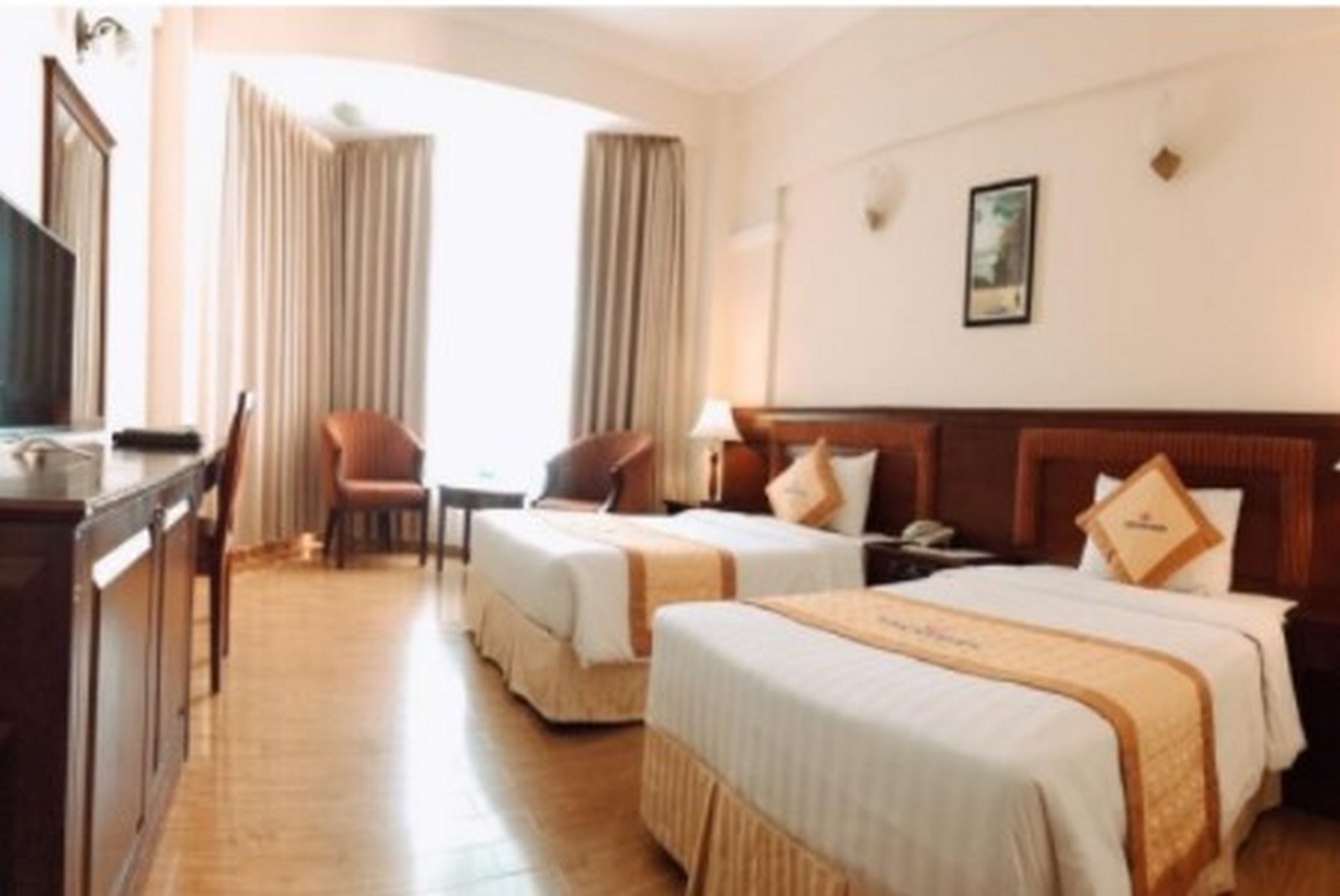
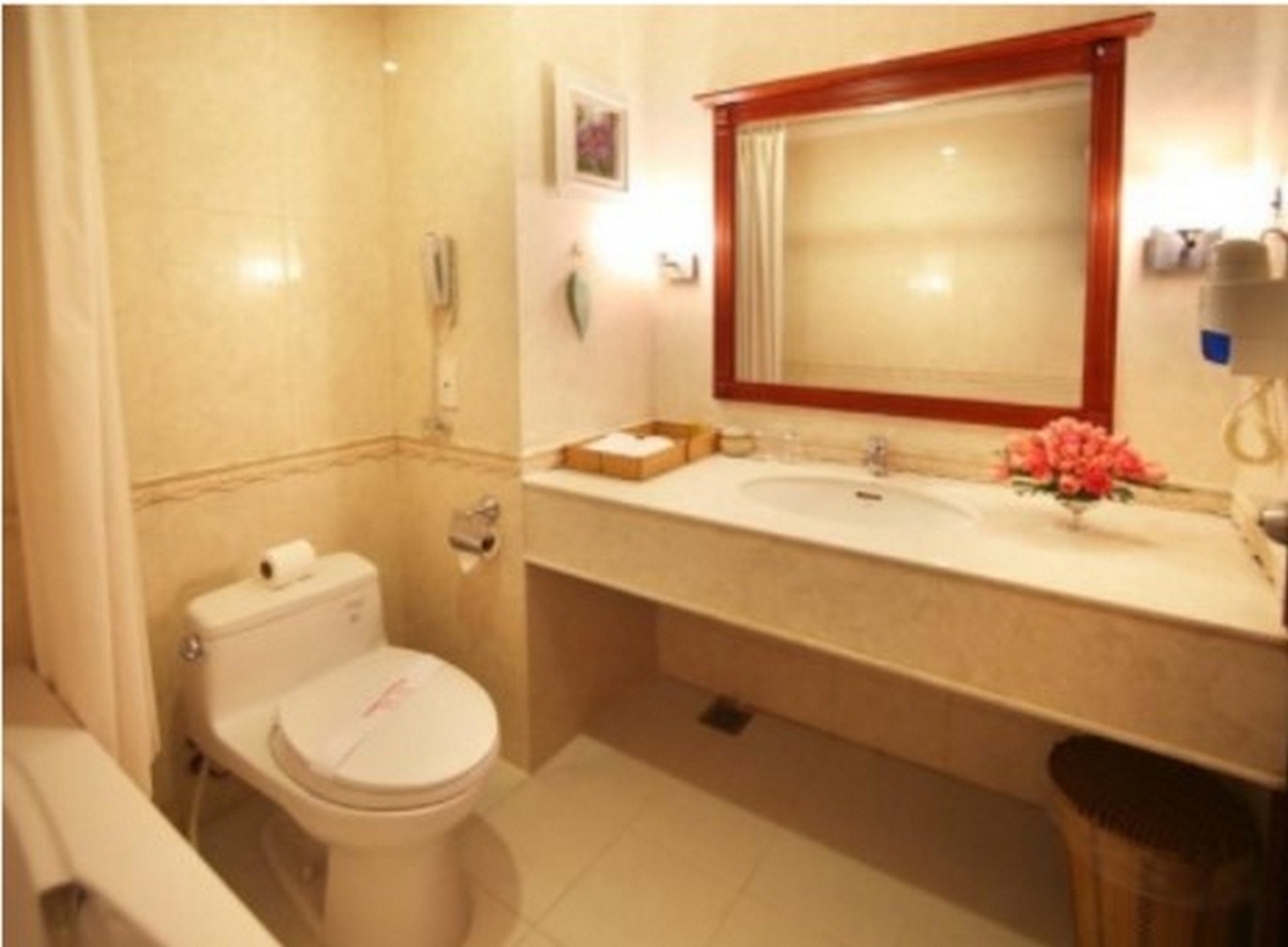
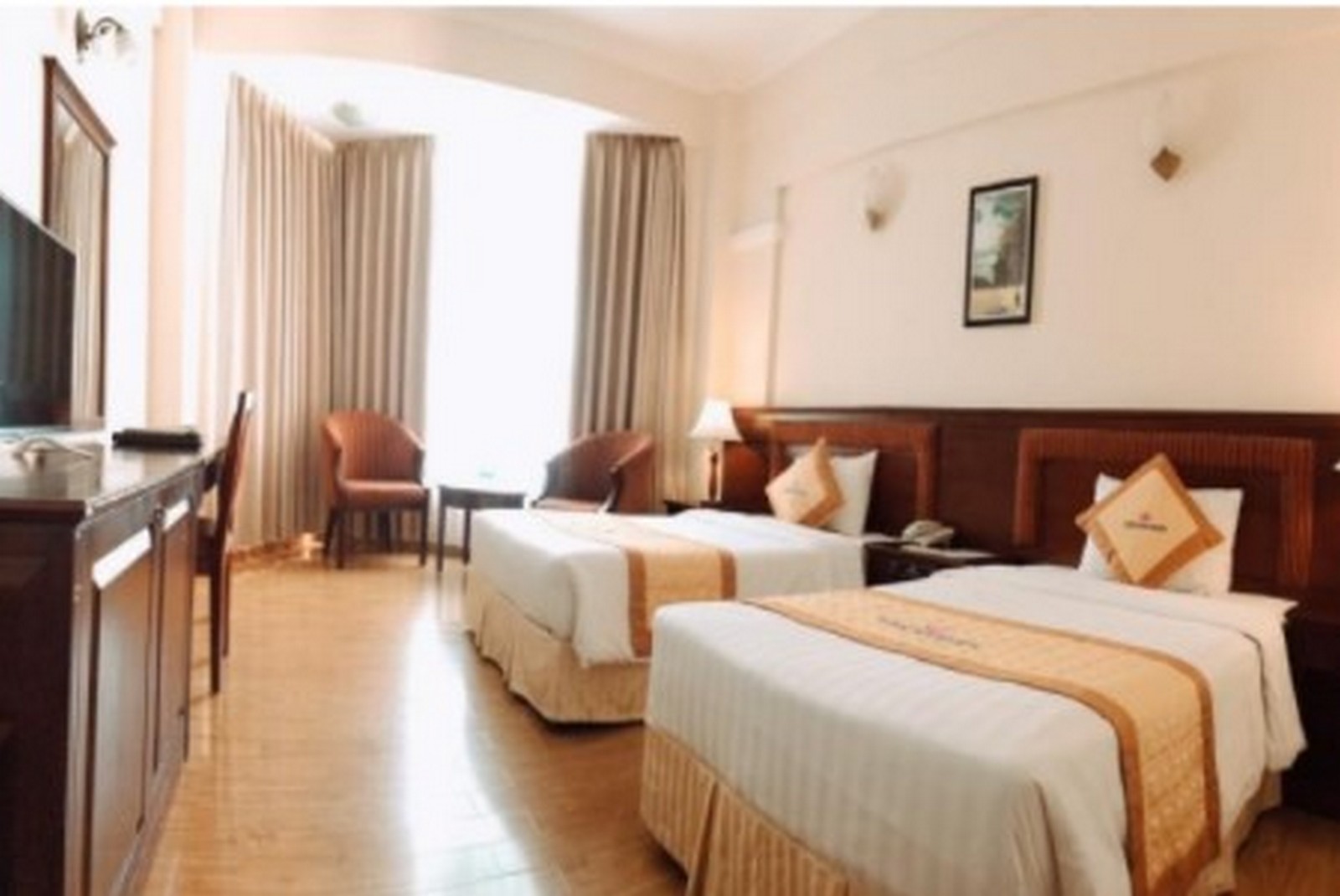



Day : 23/02/2025 - 24/02/2025
Room name : Superior Twin Room
Kind of room : Suite Room with 1 Large Bed
Total amount : Contact
Discount % member 63Stravel Vip
Final price to pay : Contact
Room amenities
 Air conditioner
Air conditioner
 Towel
Towel
 Phone
Phone
 No smoking
No smoking
 Free toiletries
Free toiletries
 Slipper
Slipper
 Hot water tank
Hot water tank
 Free wifi
Free wifi
 Shower head
Shower head
 Free tea and coffee
Free tea and coffee
 Free mineral water
Free mineral water
 Electric kettle
Electric kettle
 Hairdryer
Hairdryer
Room description : - Maximum capacity of room 4 - Standard number of guests 2 - Allowing 2 additional children to accommodate a maximum of 4 guests may incur an additional fee - For details of surcharges, please see "Final price"
Check-in time : From 2pm
Check-out time : Before 12 o'clock

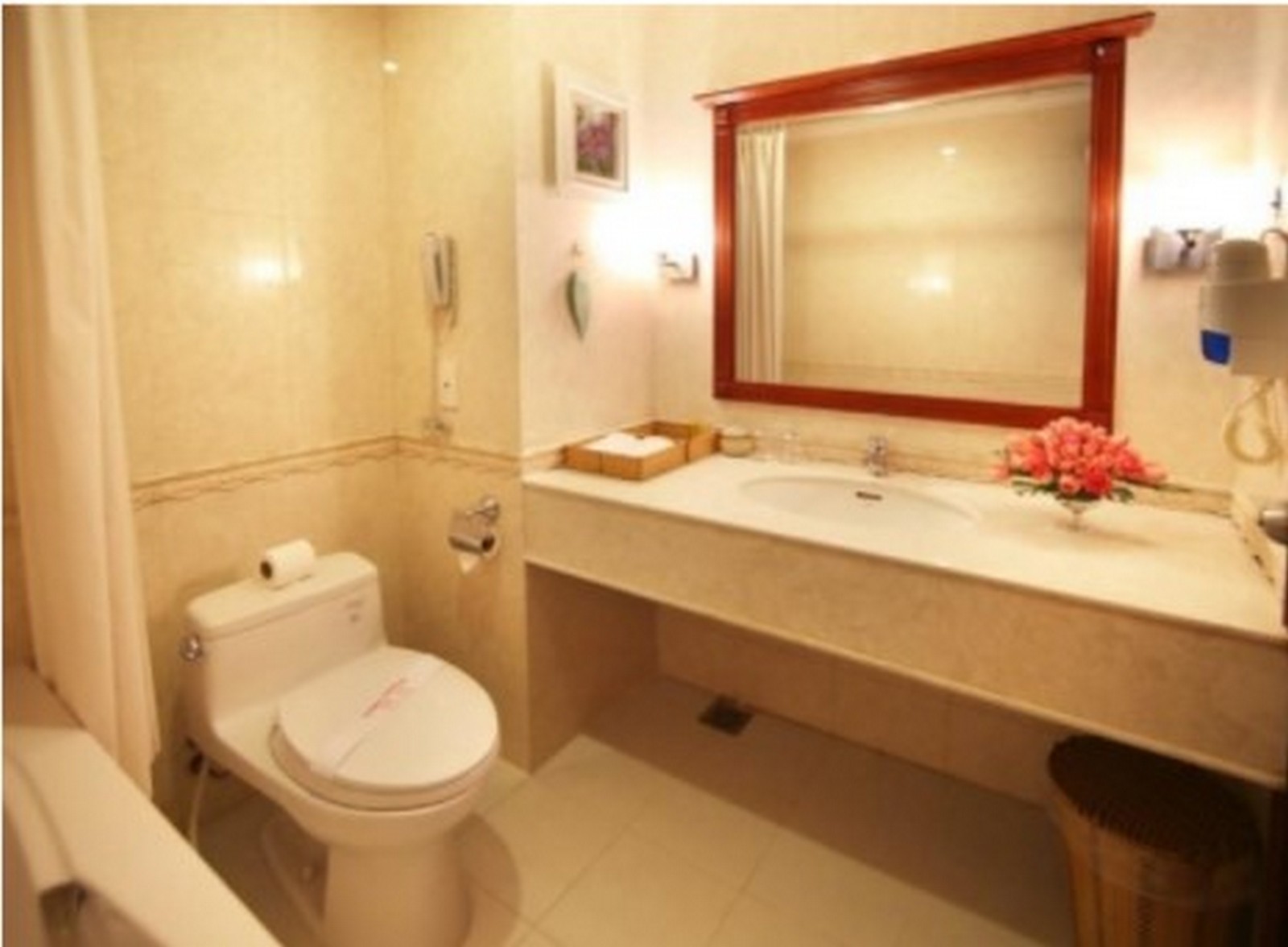



Day : 23/02/2025 - 24/02/2025
Room name : Deluxe Twin Room
Kind of room : Suite Room with 1 Large Bed
Total amount : Contact
Discount % member 63Stravel Vip
Final price to pay : Contact
Room amenities
 Air conditioner
Air conditioner
 Towel
Towel
 Phone
Phone
 No smoking
No smoking
 Free toiletries
Free toiletries
 Slipper
Slipper
 Hot water tank
Hot water tank
 Free wifi
Free wifi
 Shower head
Shower head
 Free tea and coffee
Free tea and coffee
 Free mineral water
Free mineral water
 Electric kettle
Electric kettle
 Hairdryer
Hairdryer
Room description : - Maximum capacity of room 3 - Standard number of guests 2 - Allowing 2 additional children to accommodate a maximum of 3 guests may incur an additional fee - For details of surcharges, please see "Final price"
Check-in time : From 2pm
Check-out time : Before 12 o'clock






Day : 23/02/2025 - 24/02/2025
Room name : Executive Deluxe Room 1 Double Bed
Kind of room : Suite Room with 1 Large Bed
Total amount : Contact
Discount % member 63Stravel Vip
Final price to pay : Contact
Room amenities
 Air conditioner
Air conditioner
 Towel
Towel
 Phone
Phone
 No smoking
No smoking
 Free toiletries
Free toiletries
 Slipper
Slipper
 Hot water tank
Hot water tank
 Free wifi
Free wifi
 Shower head
Shower head
 Free tea and coffee
Free tea and coffee
 Free mineral water
Free mineral water
 Electric kettle
Electric kettle
 Hairdryer
Hairdryer
Room description : - Maximum capacity of room 4 - Standard number of guests 2 - Allowing 2 additional children to accommodate a maximum of 4 guests may incur an additional fee - For details of surcharges, please see "Final price"
Check-in time : From 2pm
Check-out time : Before 12 o'clock








Day : 23/02/2025 - 24/02/2025
Room name : Suite Room with 1 Large Bed
Kind of room : Suite Room with 1 Large Bed
Total amount : Contact
Discount % member 63Stravel Vip
Final price to pay : Contact
Room amenities
 Air conditioner
Air conditioner
 Towel
Towel
 Phone
Phone
 No smoking
No smoking
 Free toiletries
Free toiletries
 Slipper
Slipper
 Hot water tank
Hot water tank
 Free wifi
Free wifi
 Shower head
Shower head
 Free tea and coffee
Free tea and coffee
 Free mineral water
Free mineral water
 Electric kettle
Electric kettle
 Hairdryer
Hairdryer
Room description : - Maximum capacity of room 4 - Standard number of guests 2 - Allowing 2 additional children to accommodate a maximum of 4 guests may incur an additional fee - For details of surcharges, please see "Final price"
Check-in time : From 2pm
Check-out time : Before 12 o'clock
( Discount % member 63Stravel Vip )
 Parking
Parking
 Receptionist
Receptionist
 Alarm
Alarm
 Selling tours
Selling tours
 Special help
Special help
 Keep your luggage
Keep your luggage
 Free internet
Free internet
 Daily cleaning
Daily cleaning
 Steam laundry
Steam laundry
 Laundry Service
Laundry Service
 Iron
Iron
 Access for people with disabilities
Access for people with disabilities
 Dinner
Dinner
 Lunch
Lunch
 Breakfast
Breakfast
 BBQ party
BBQ party
 Restaurant
Restaurant
 Alcohol
Alcohol
 Meeting
Meeting
 No smoking
No smoking
 Air conditioner
Air conditioner
 Garden
Garden
 Balcony
Balcony
 Pool
Pool
( Discount % member 63Stravel Vip )
( Discount % member 63Stravel Vip )
